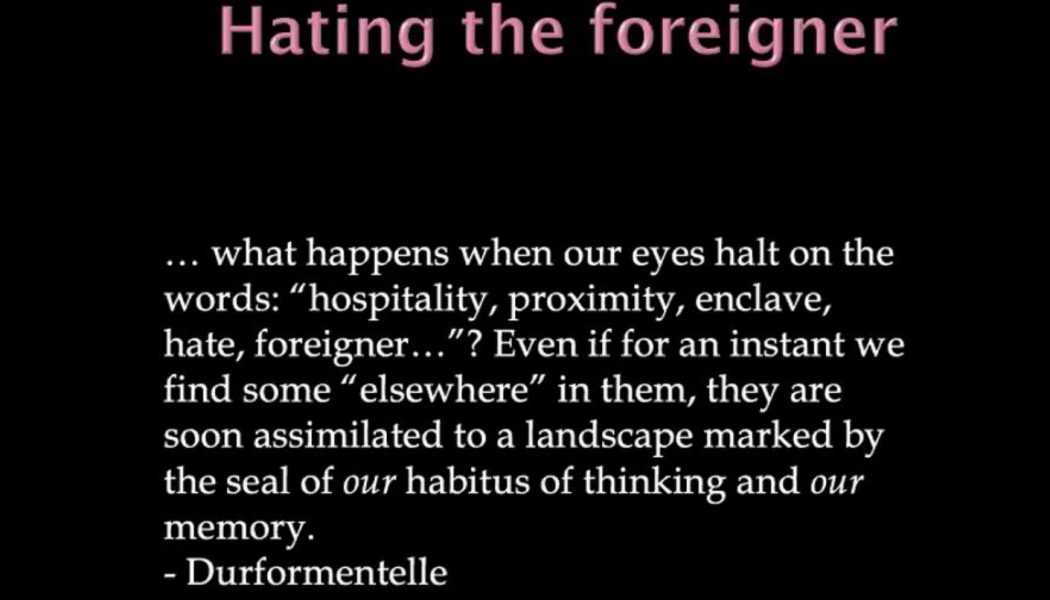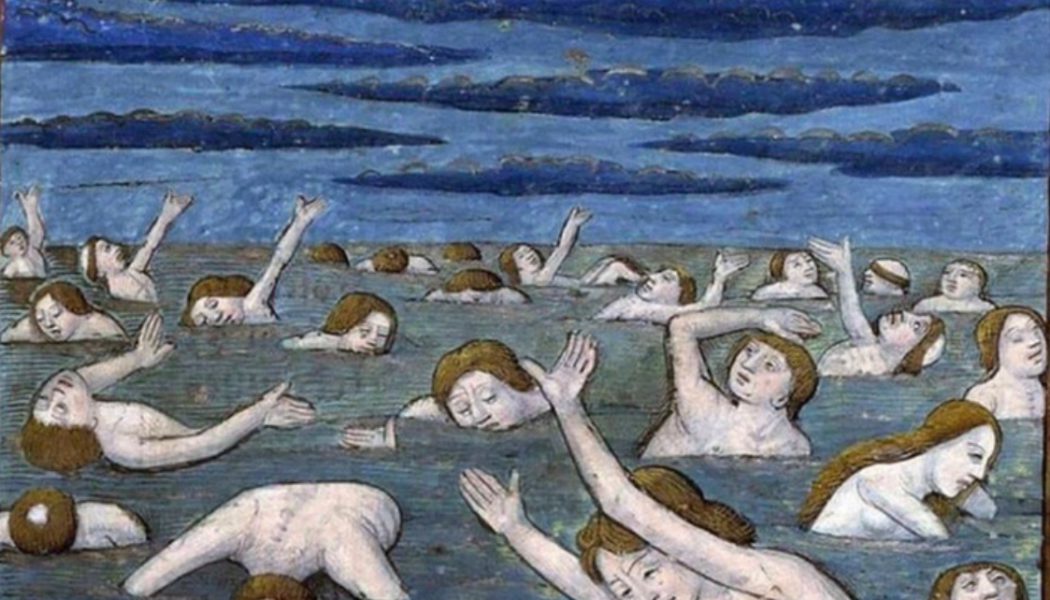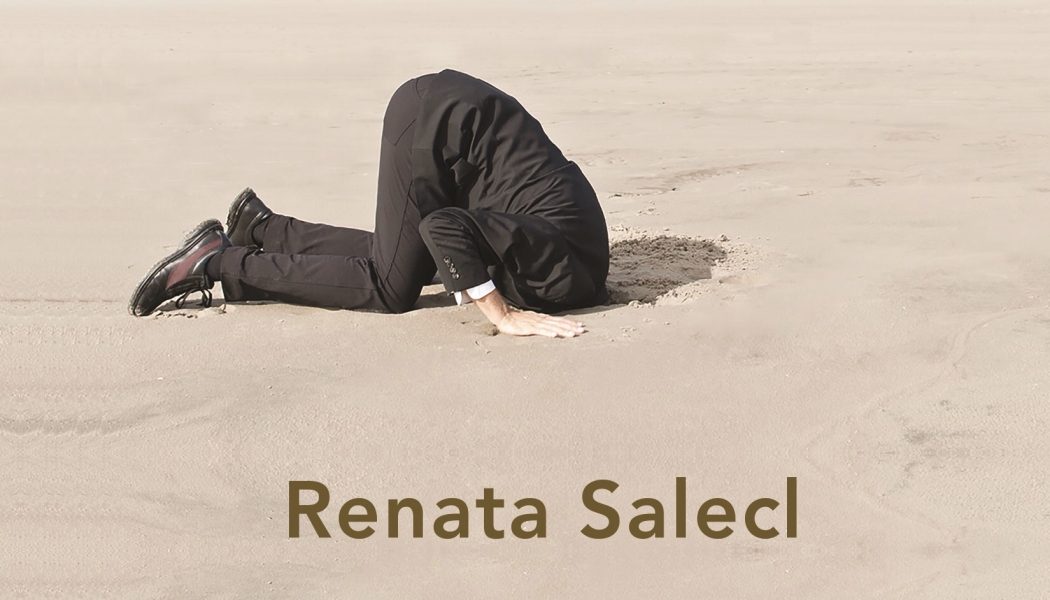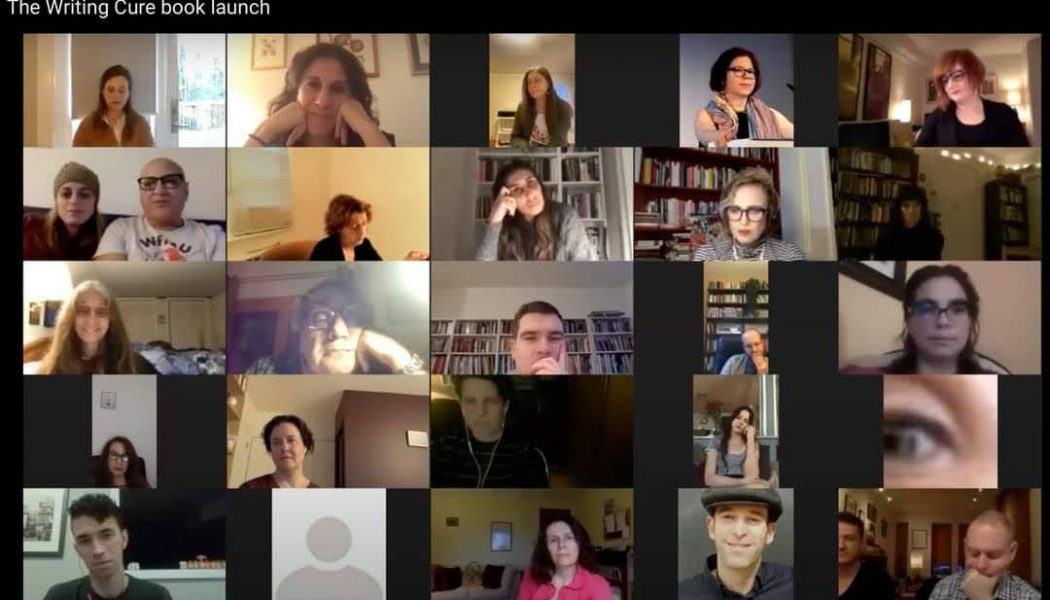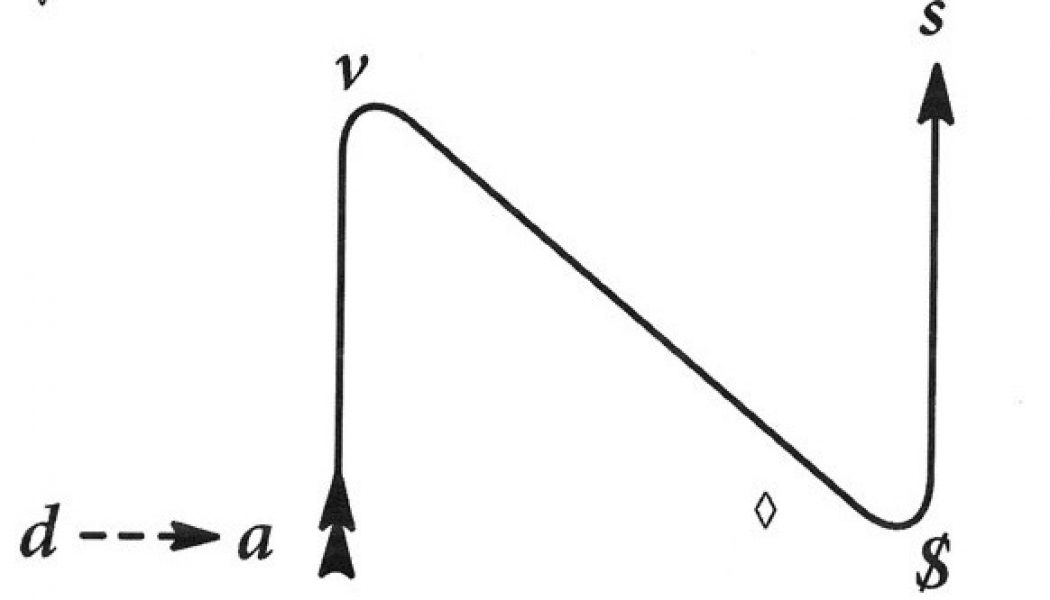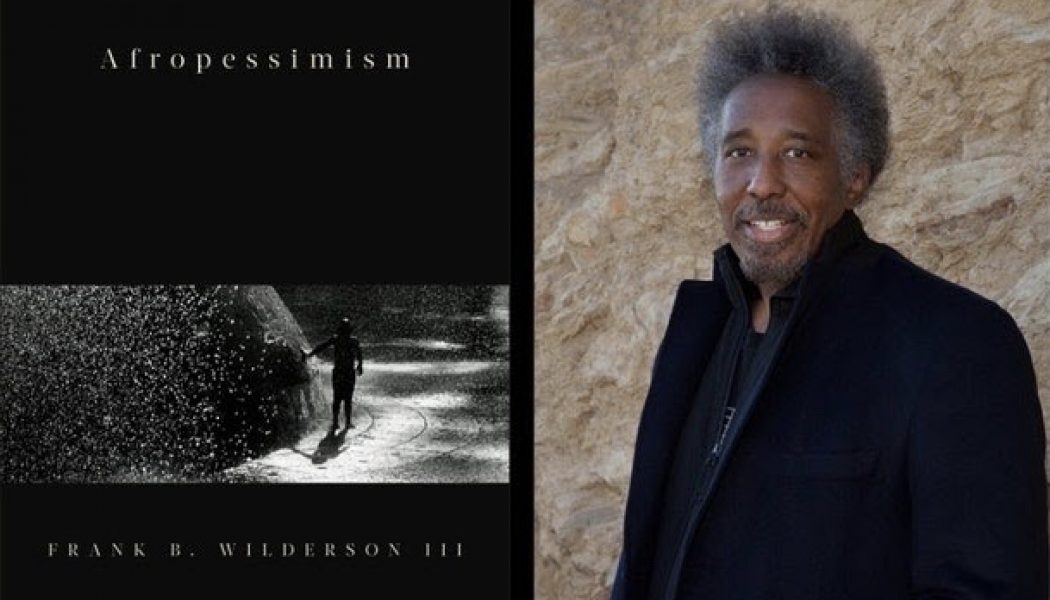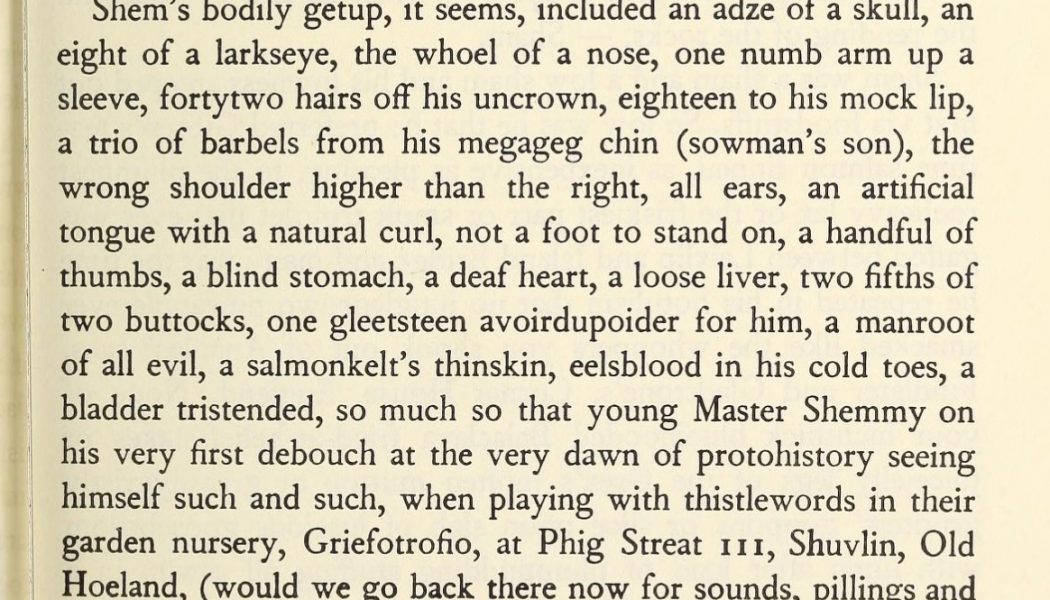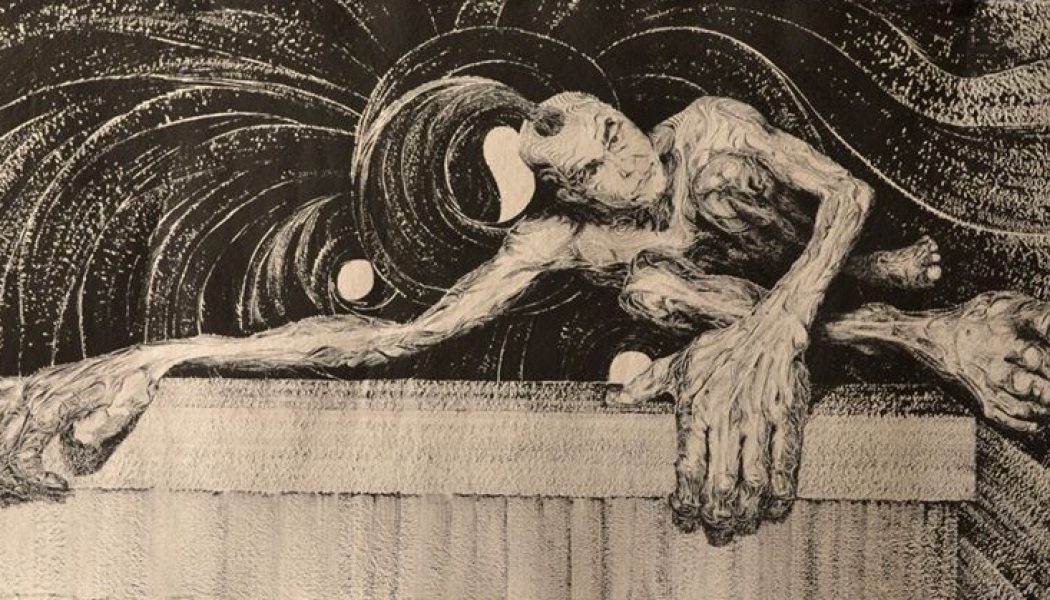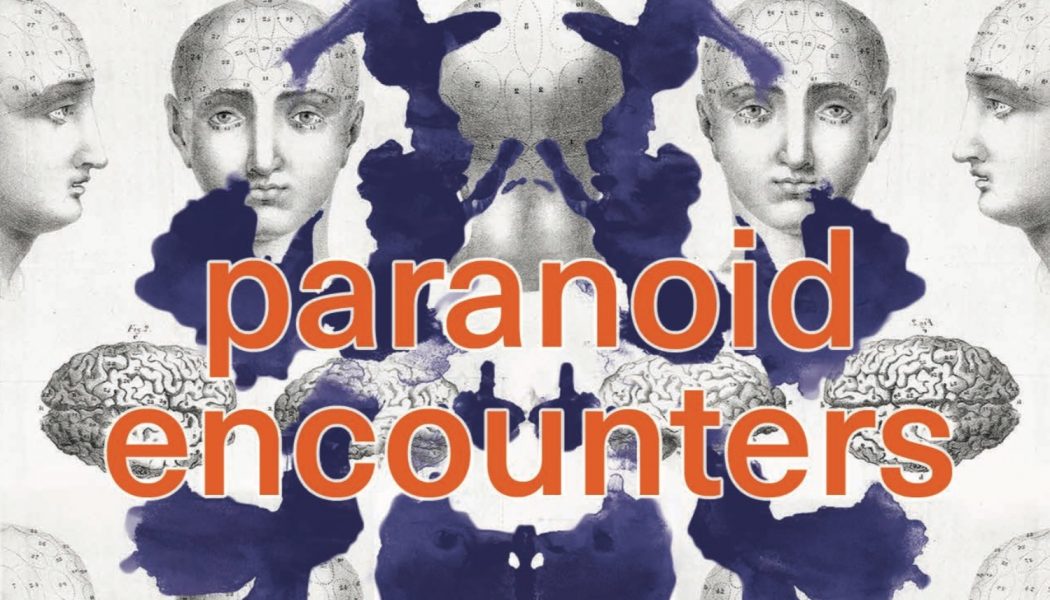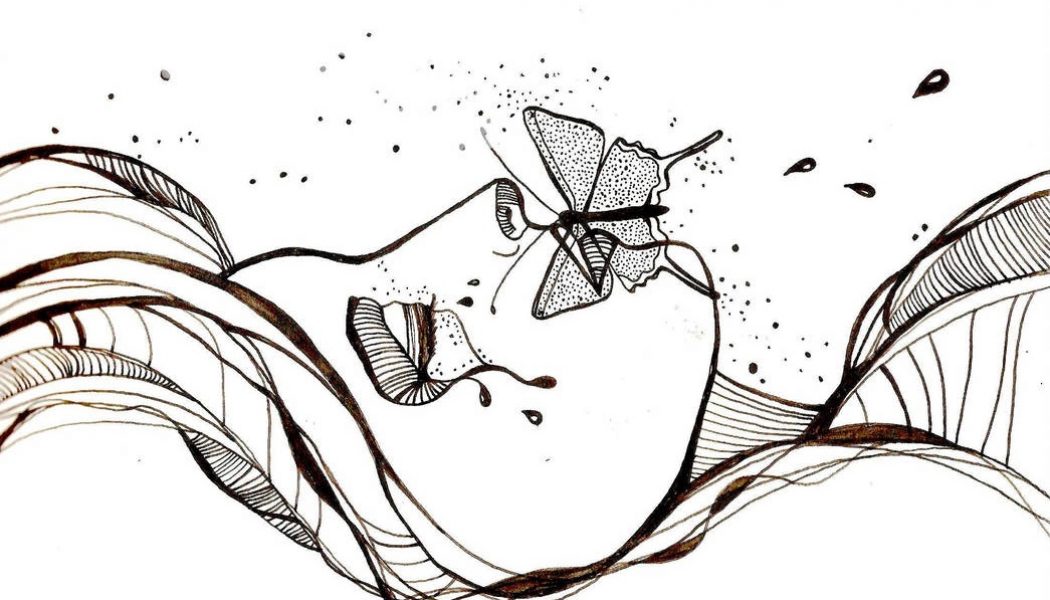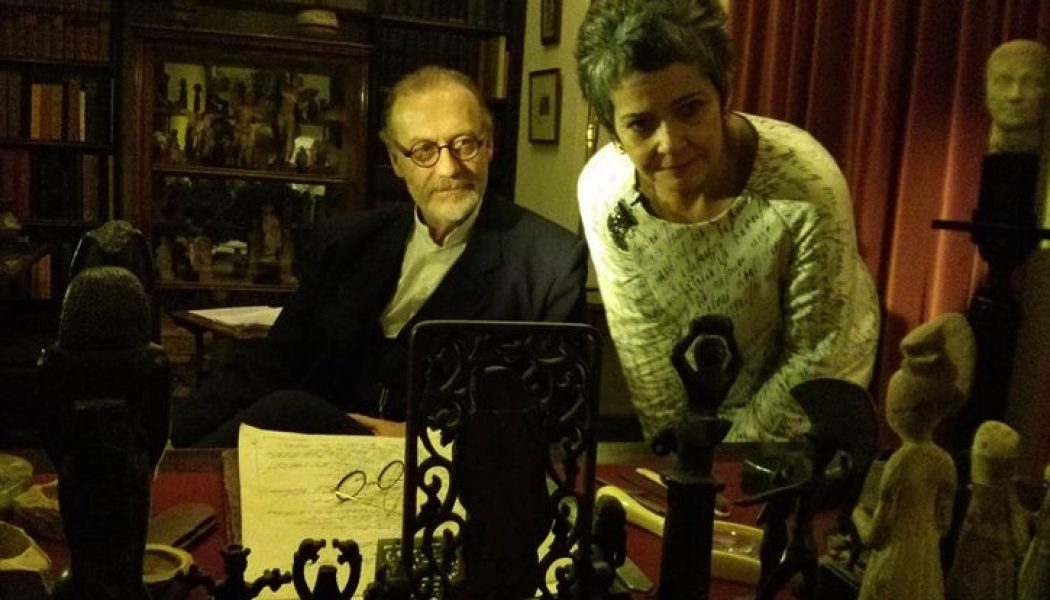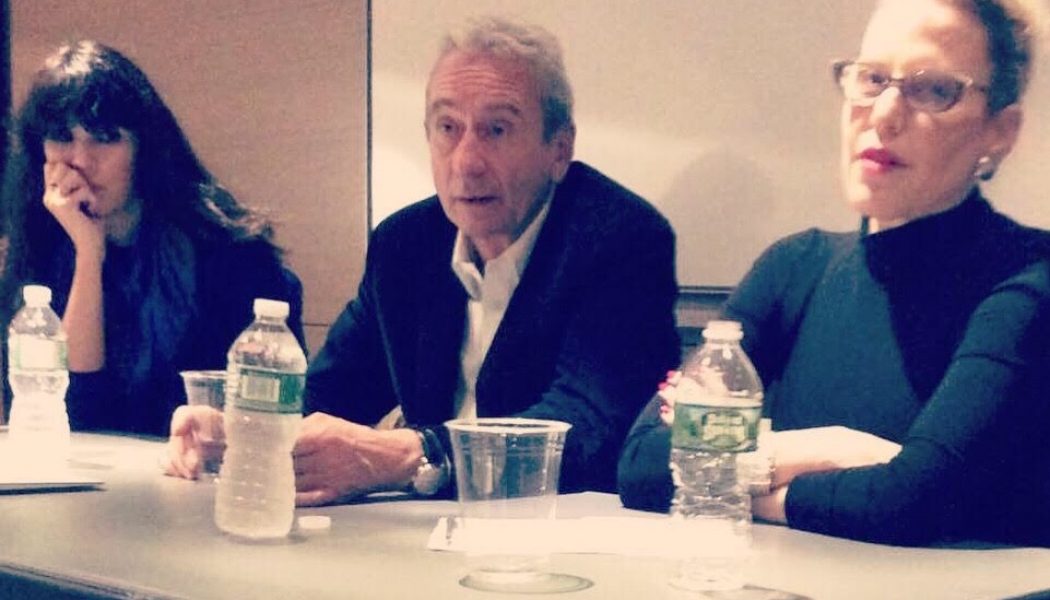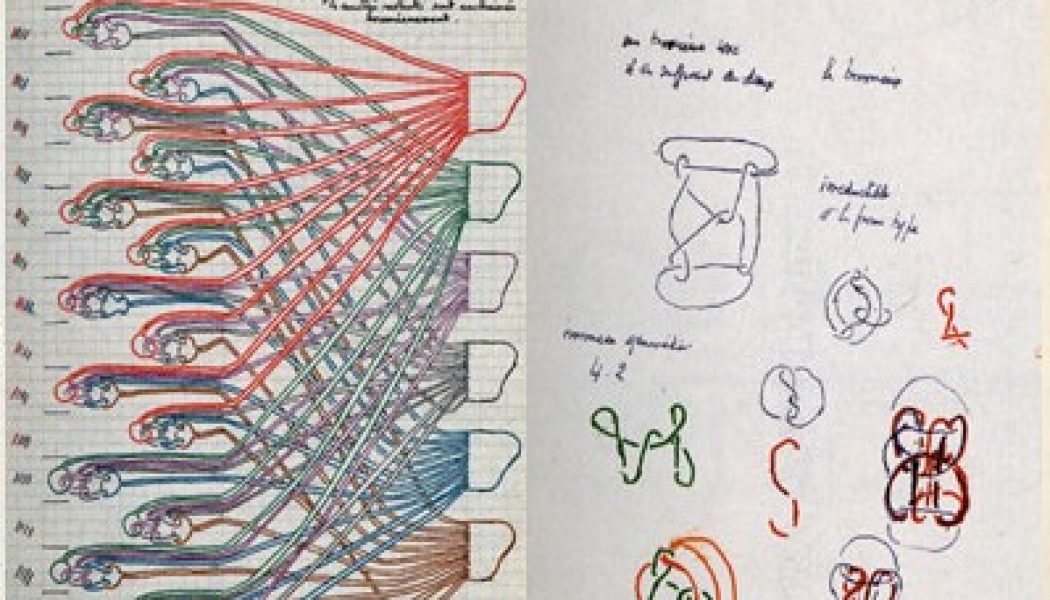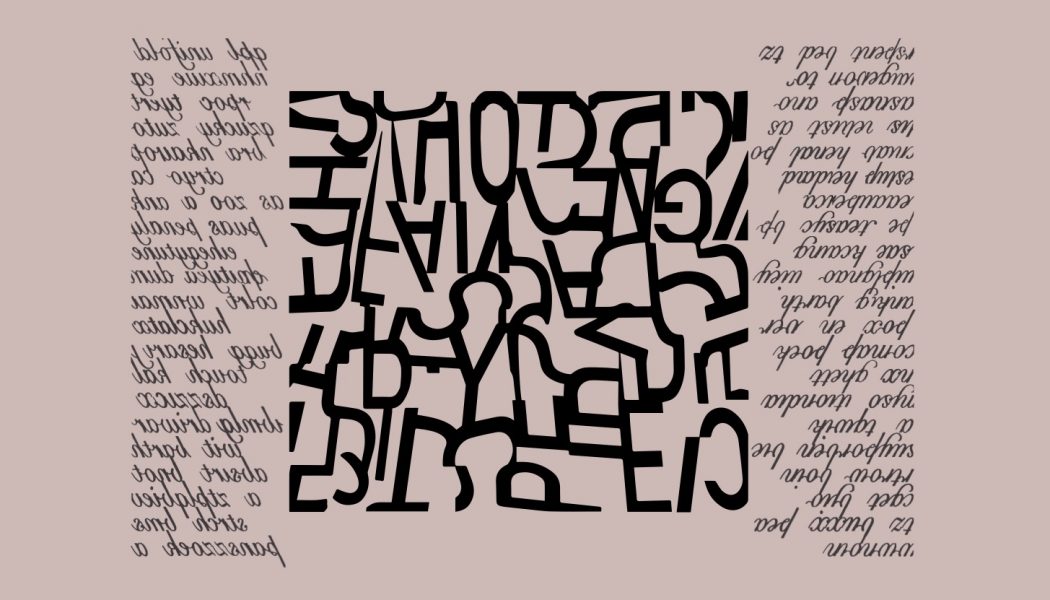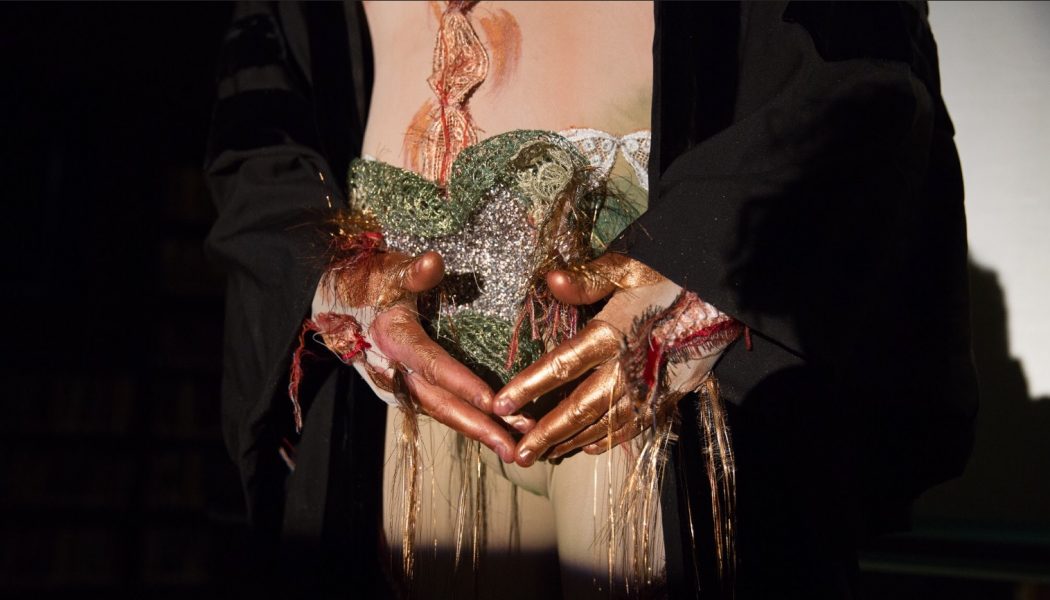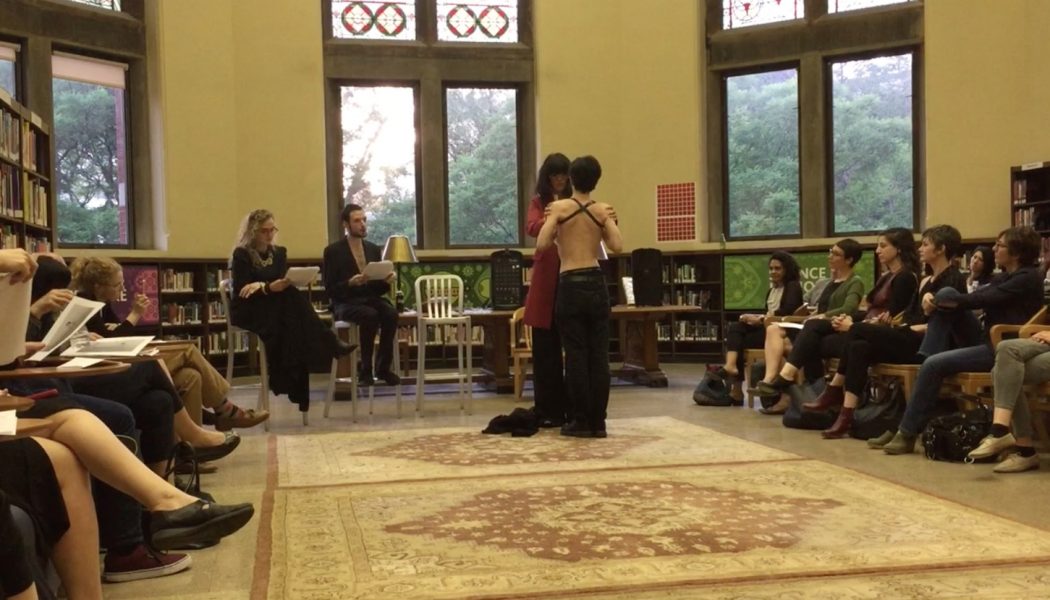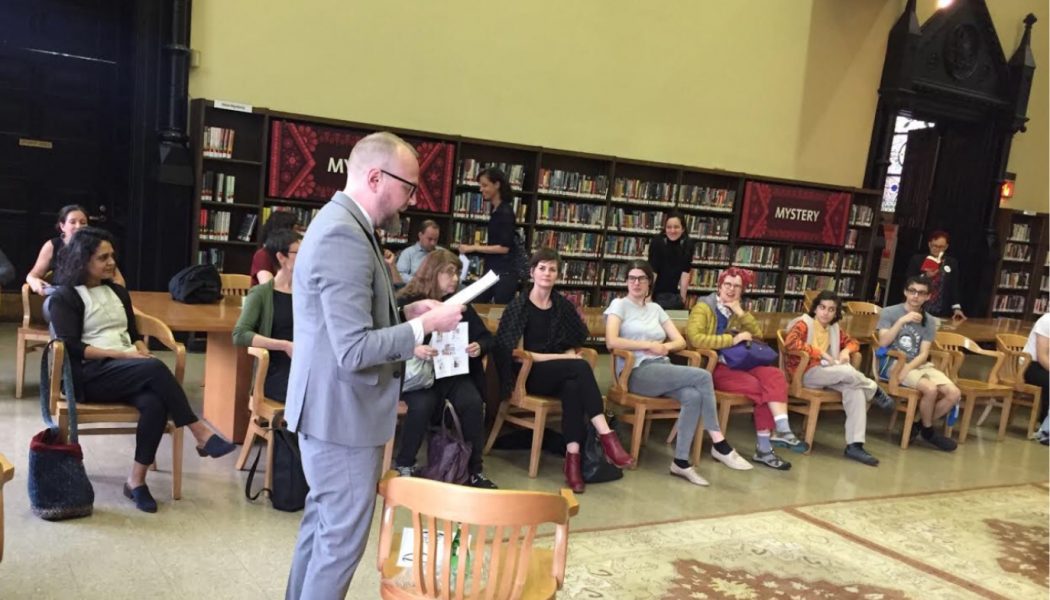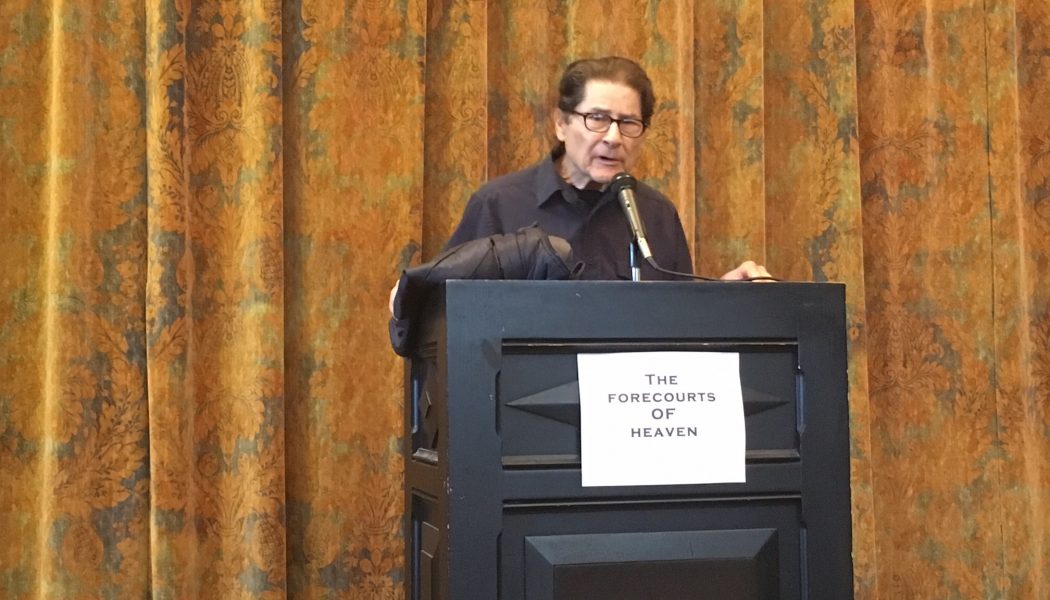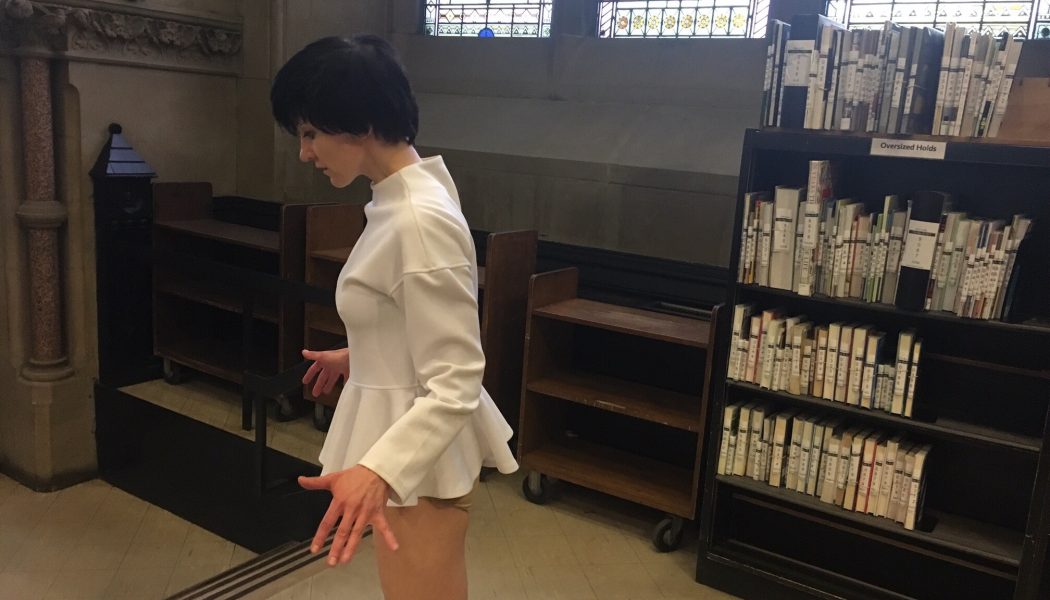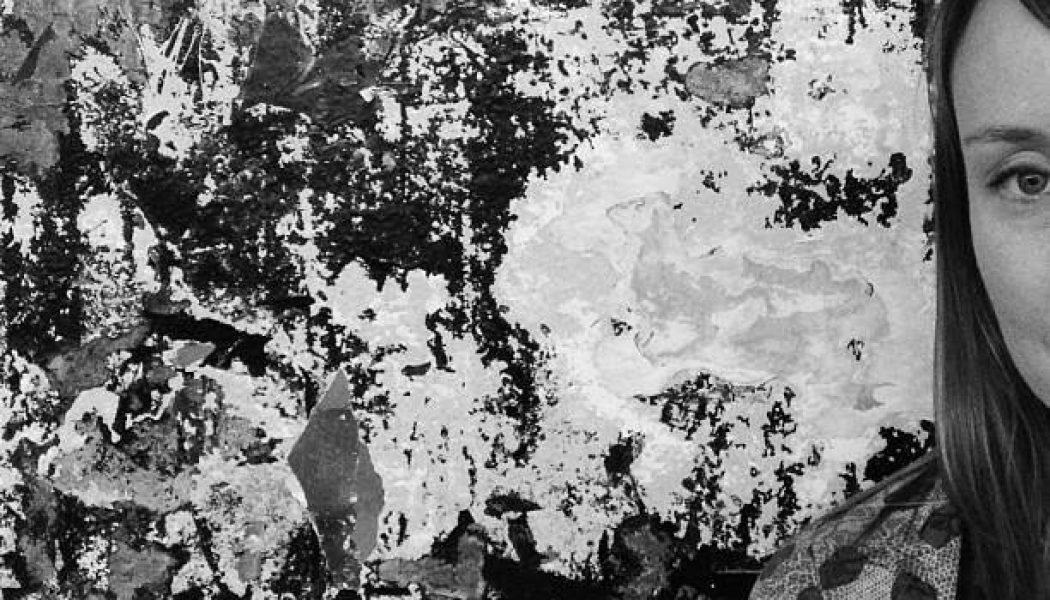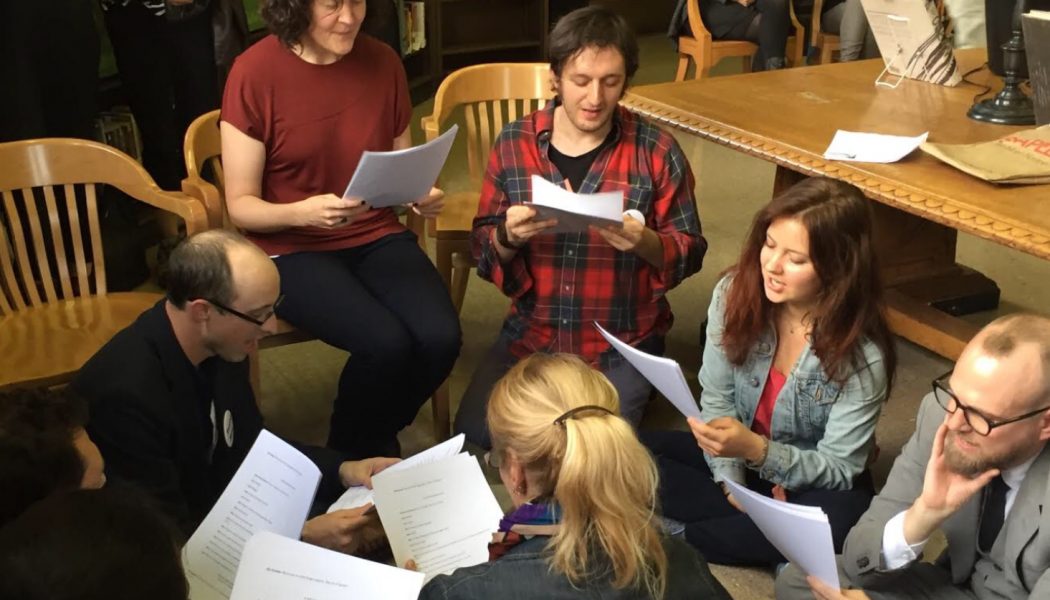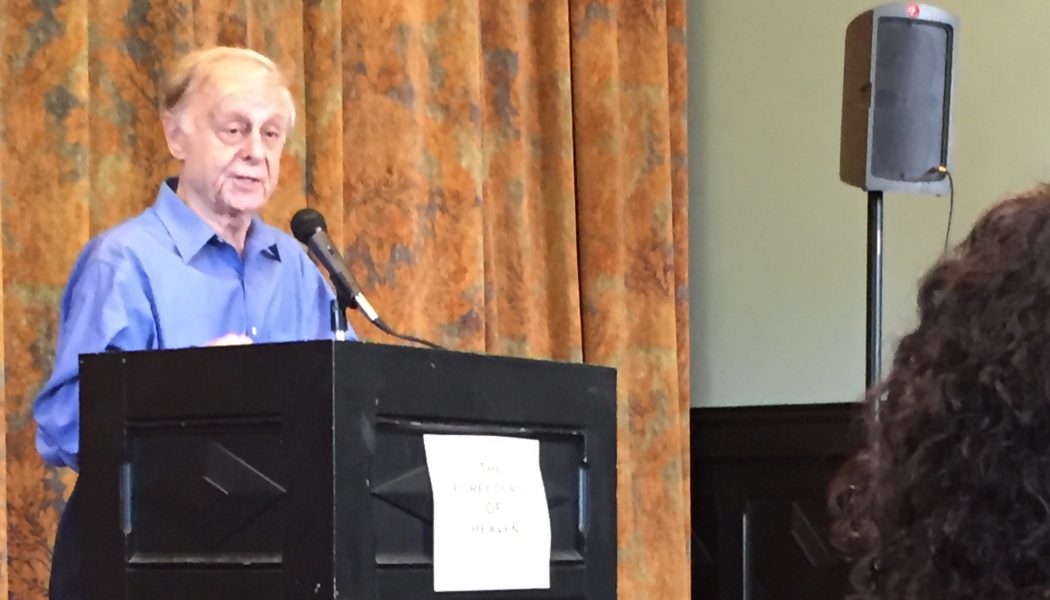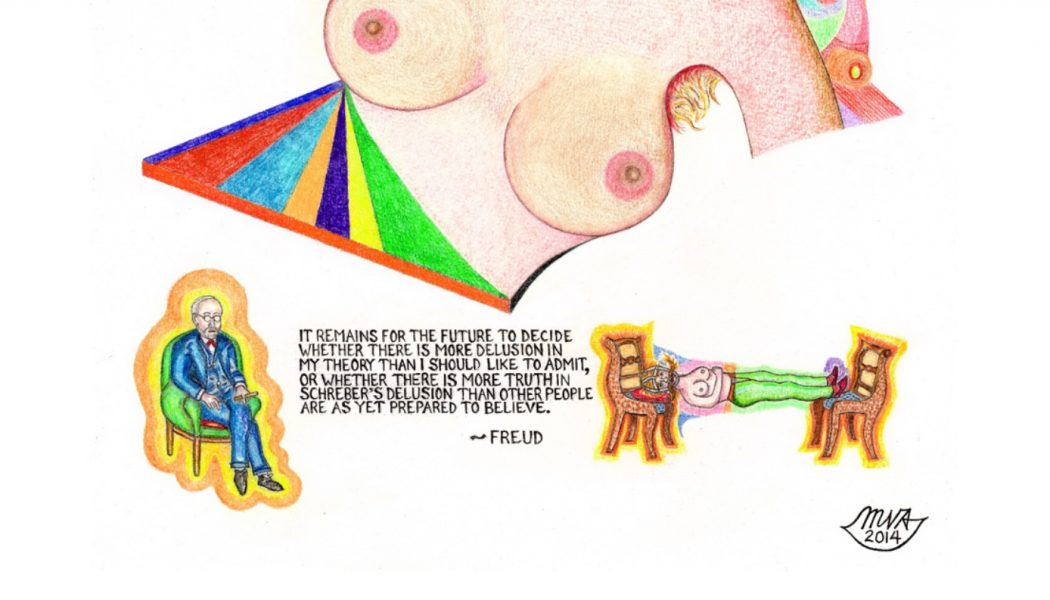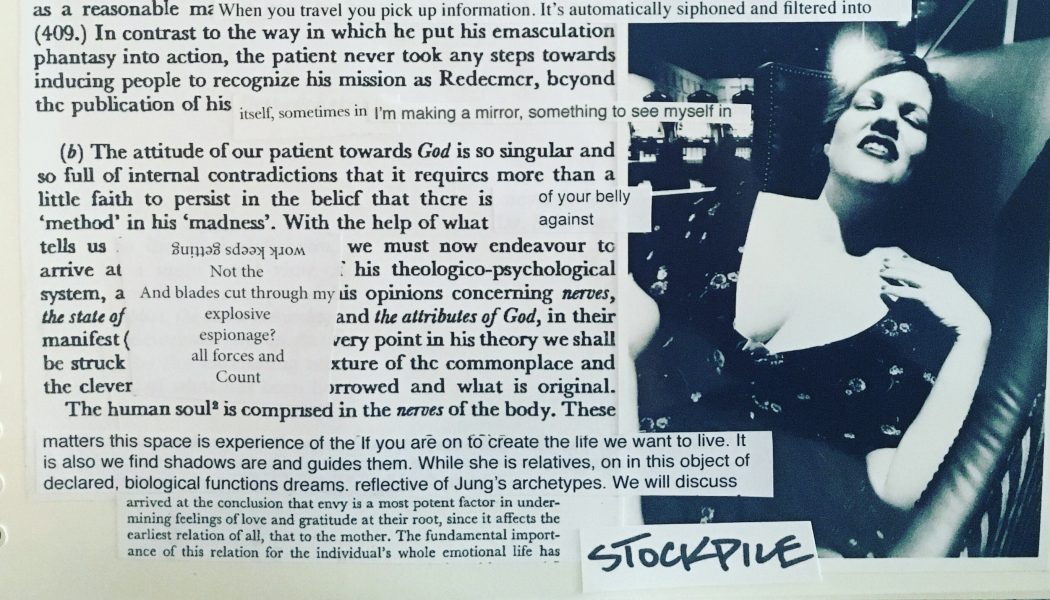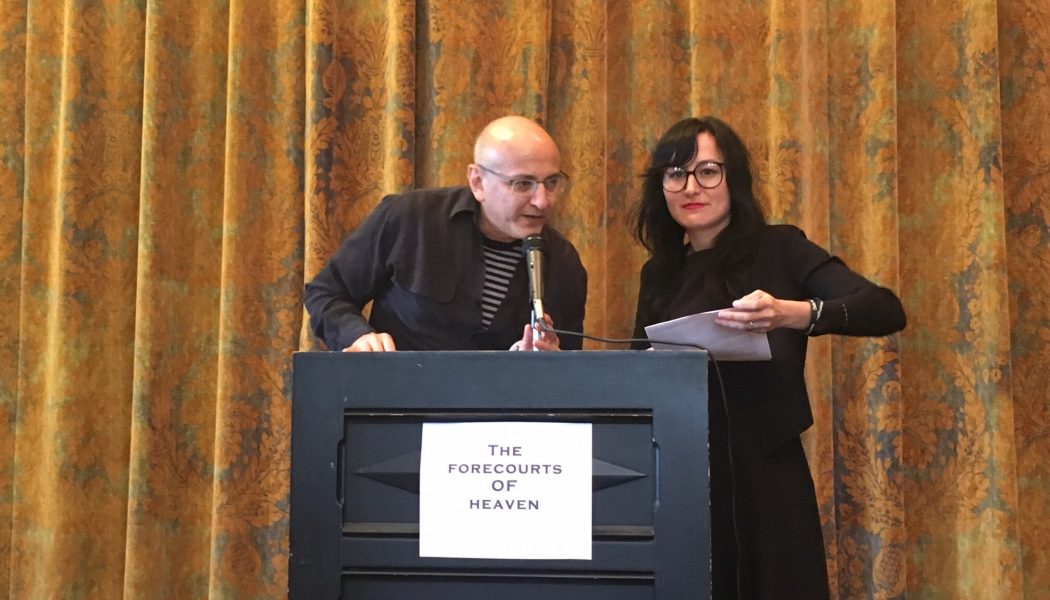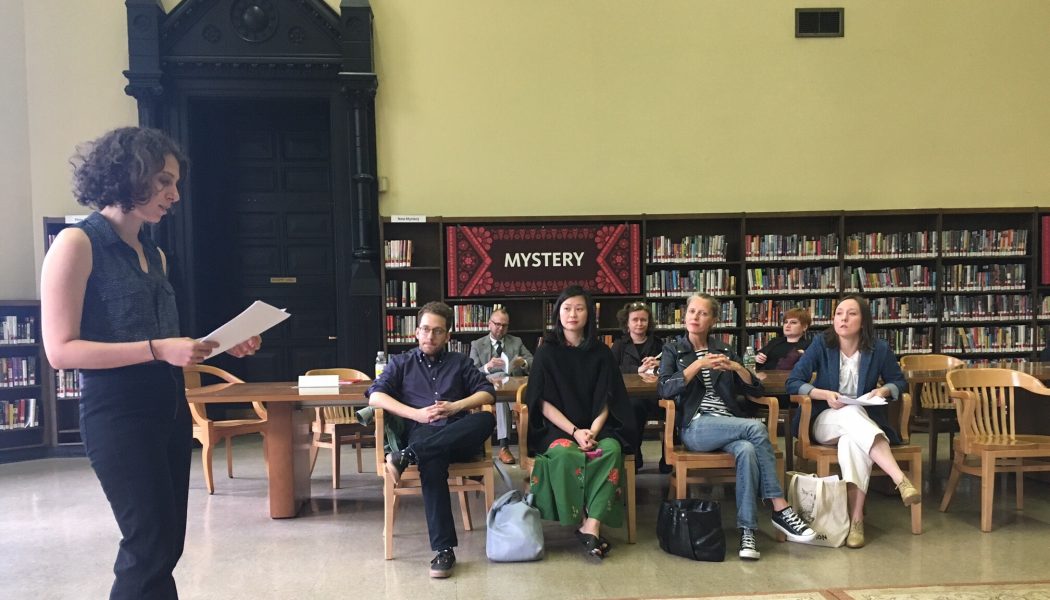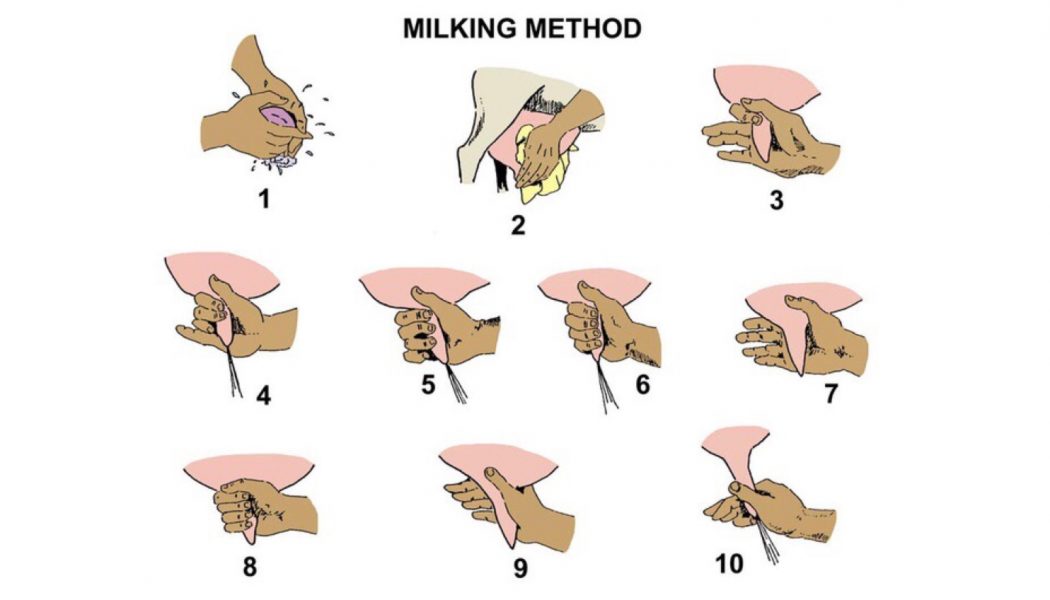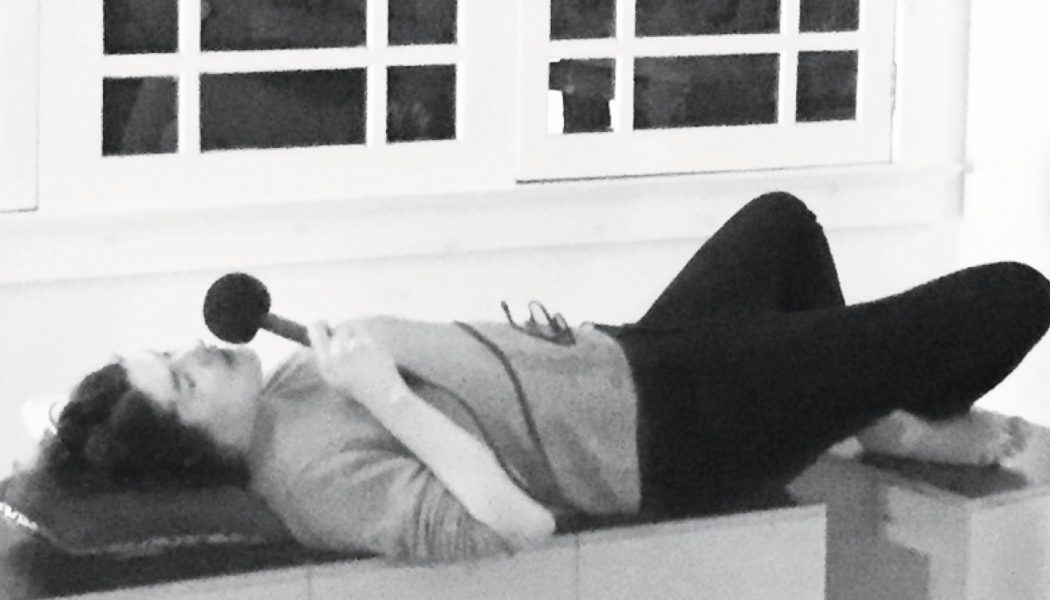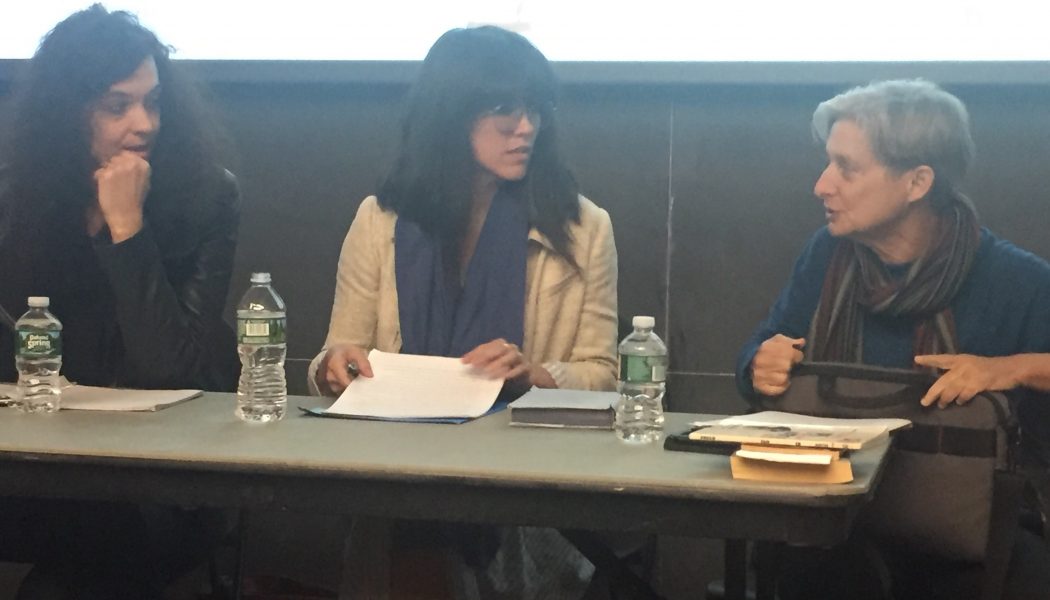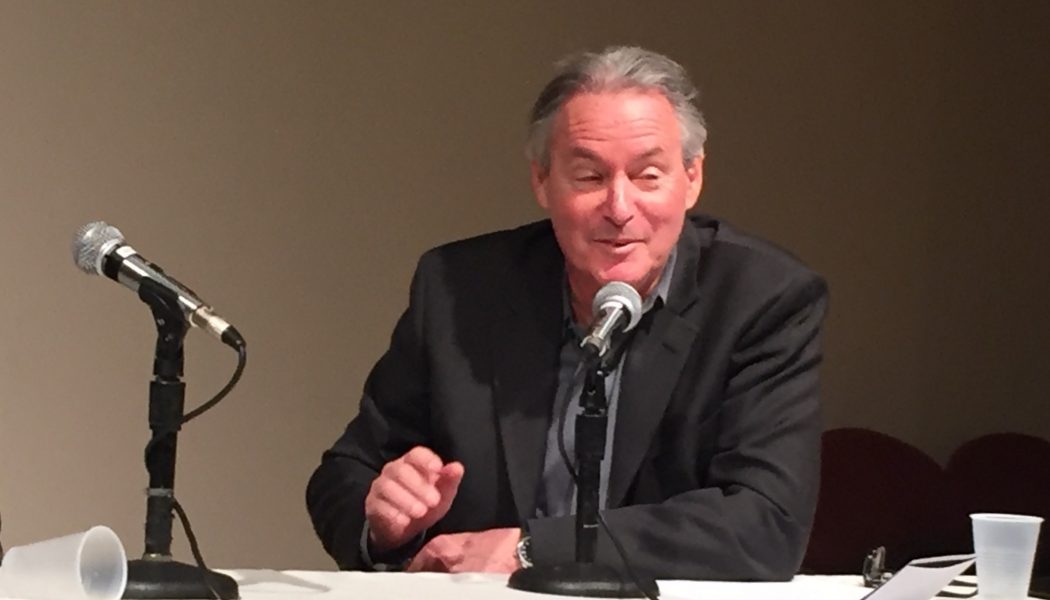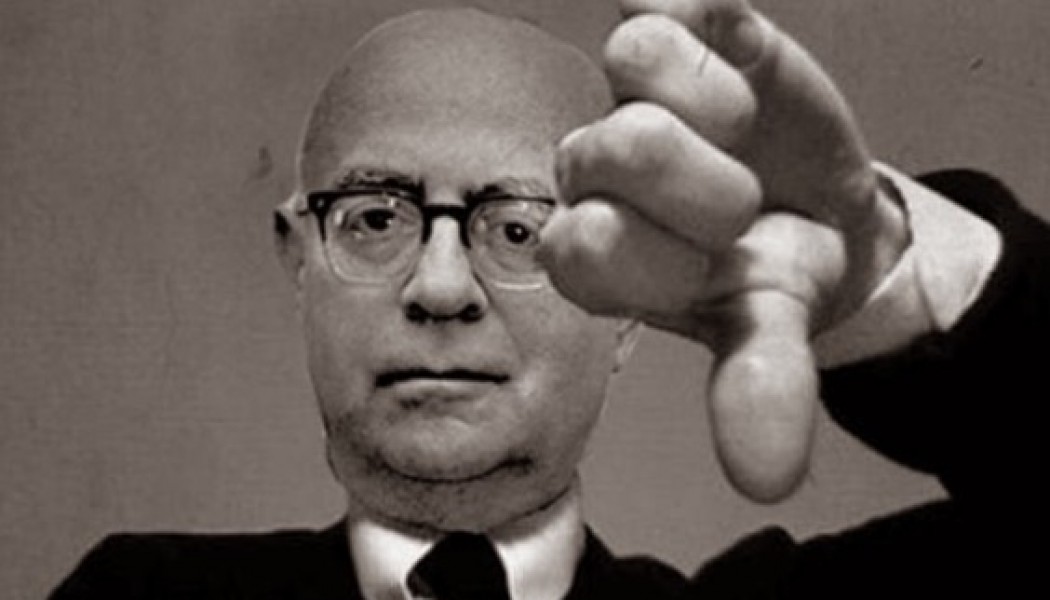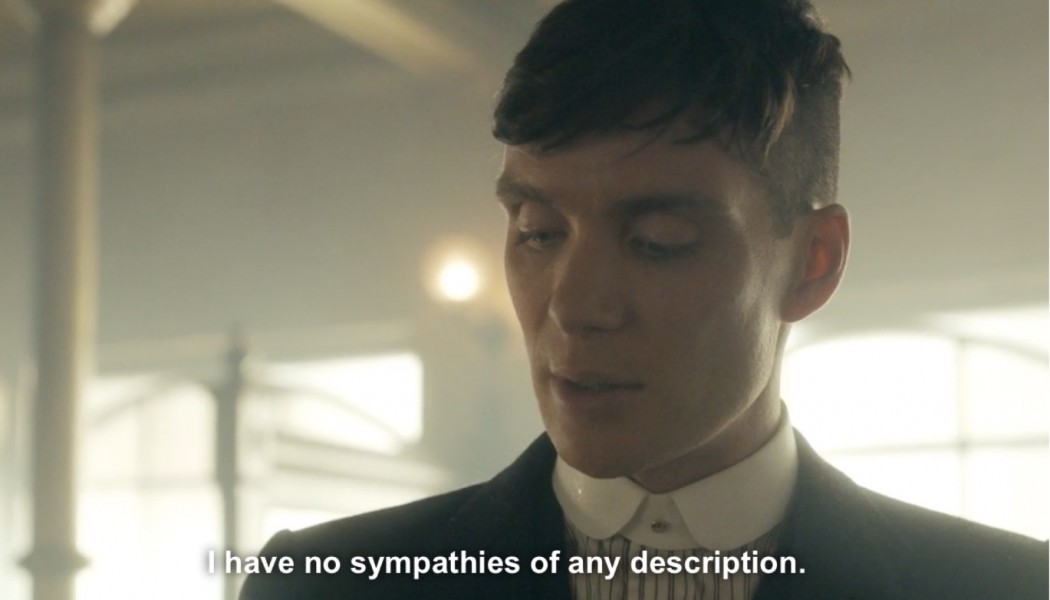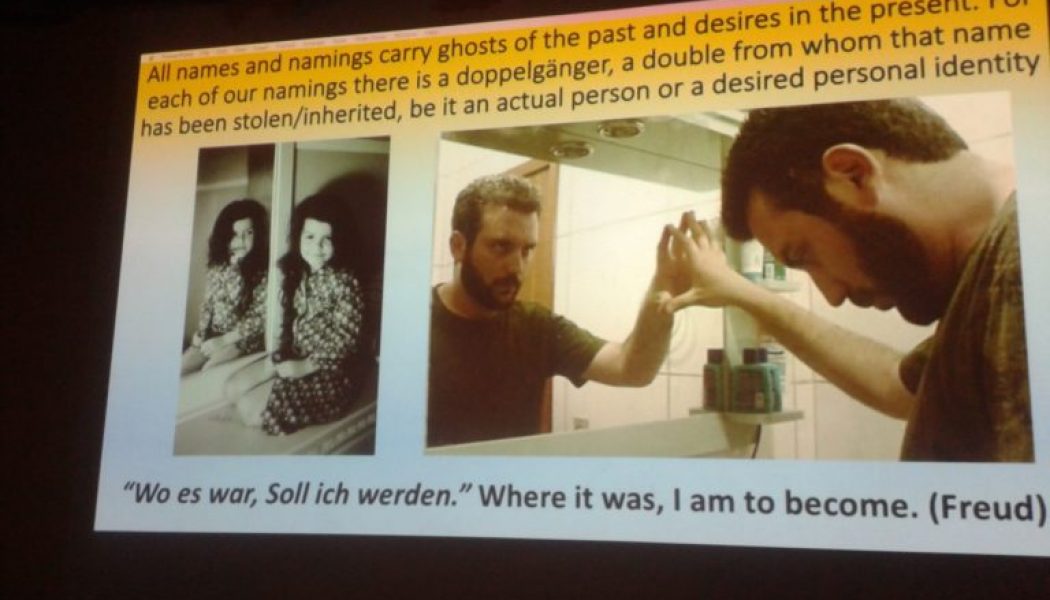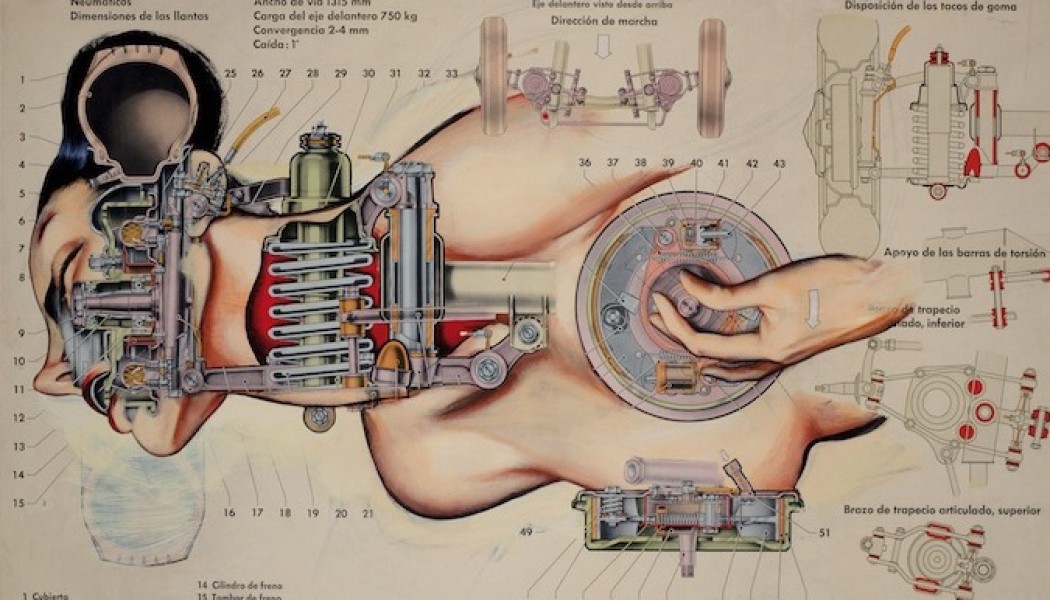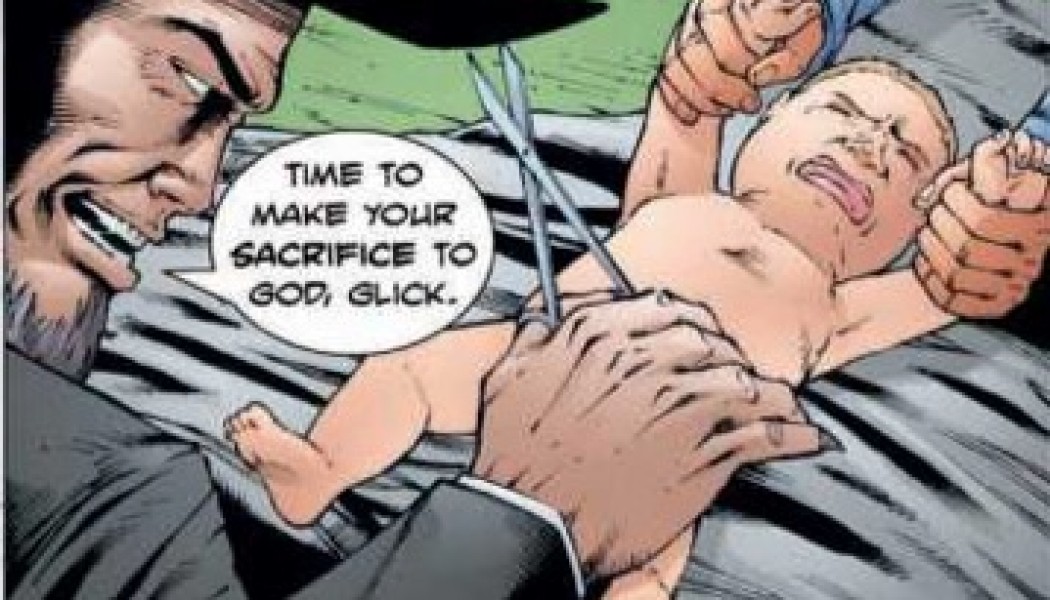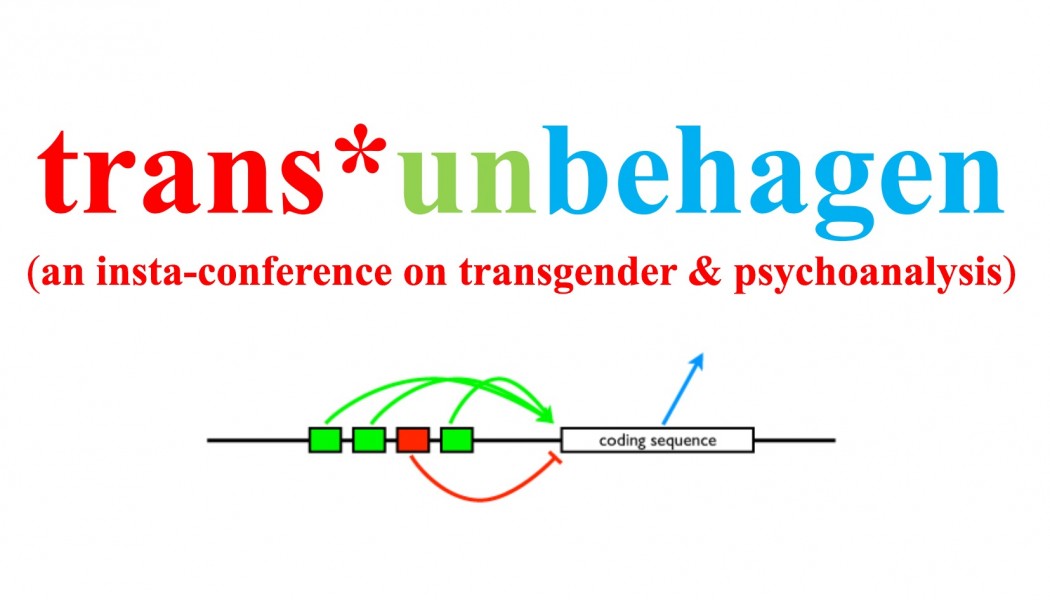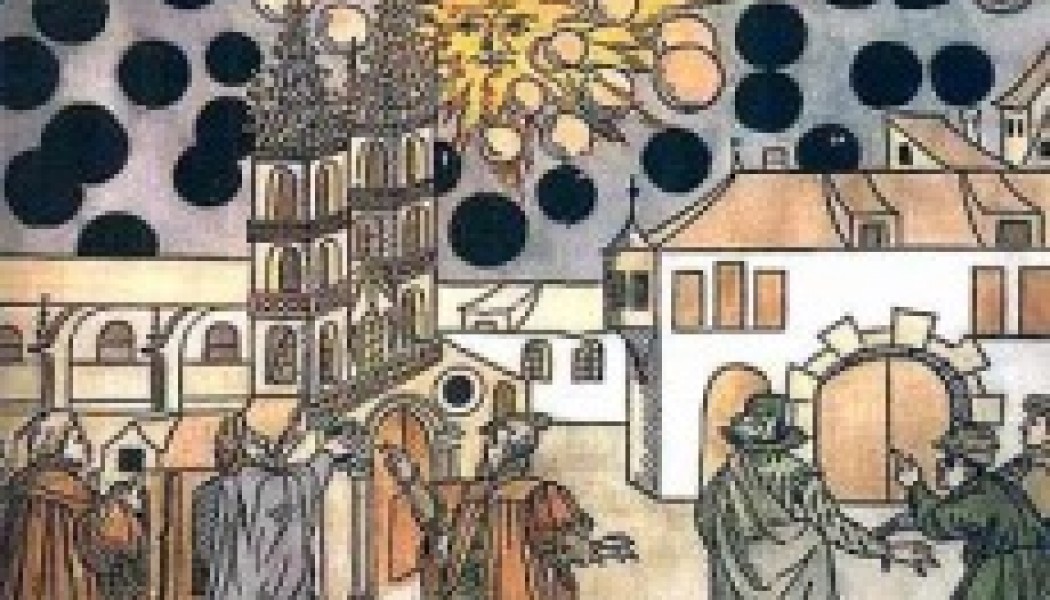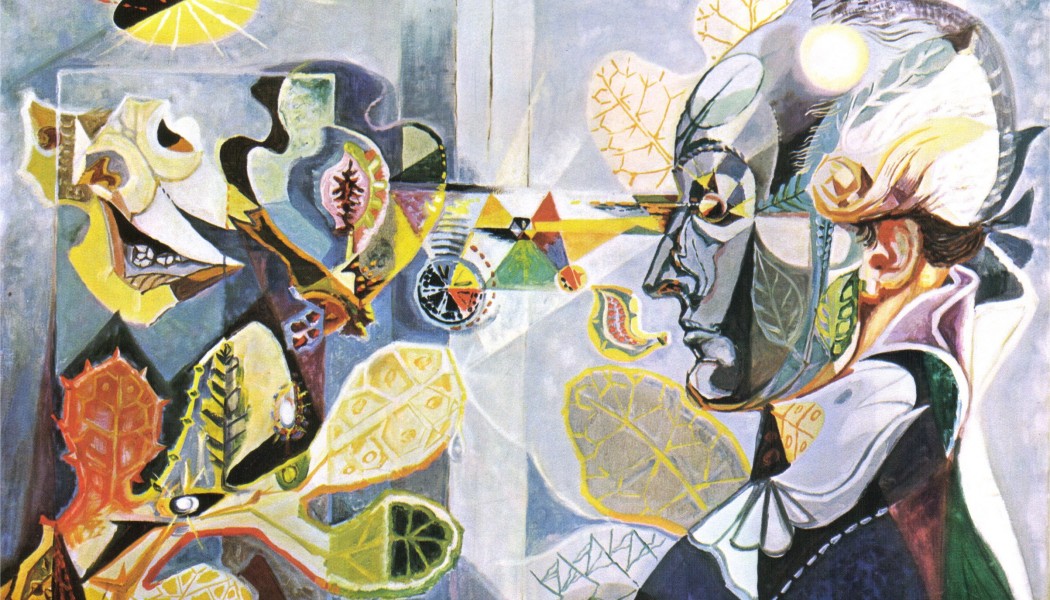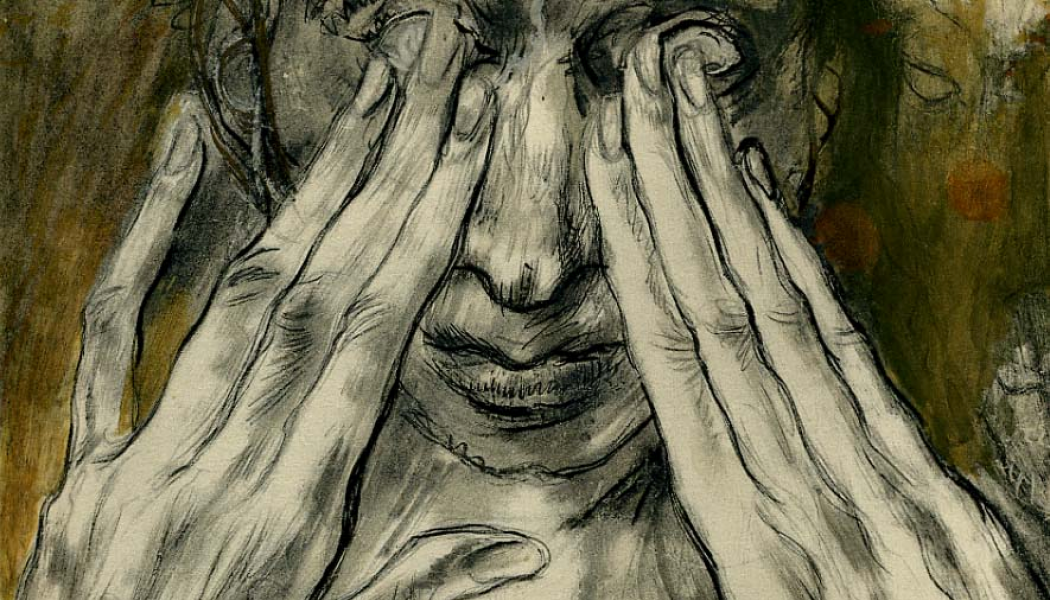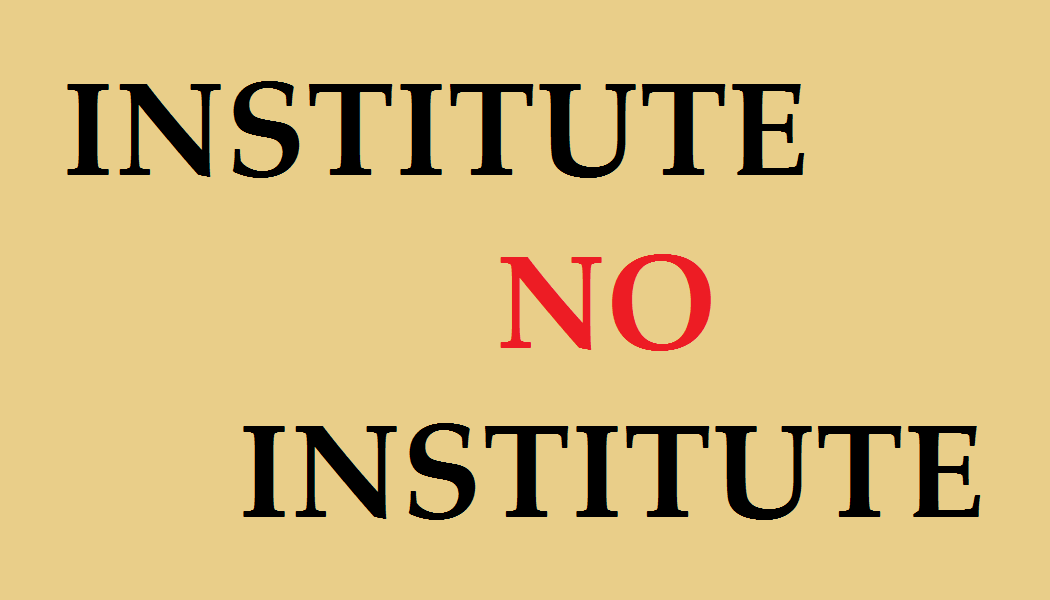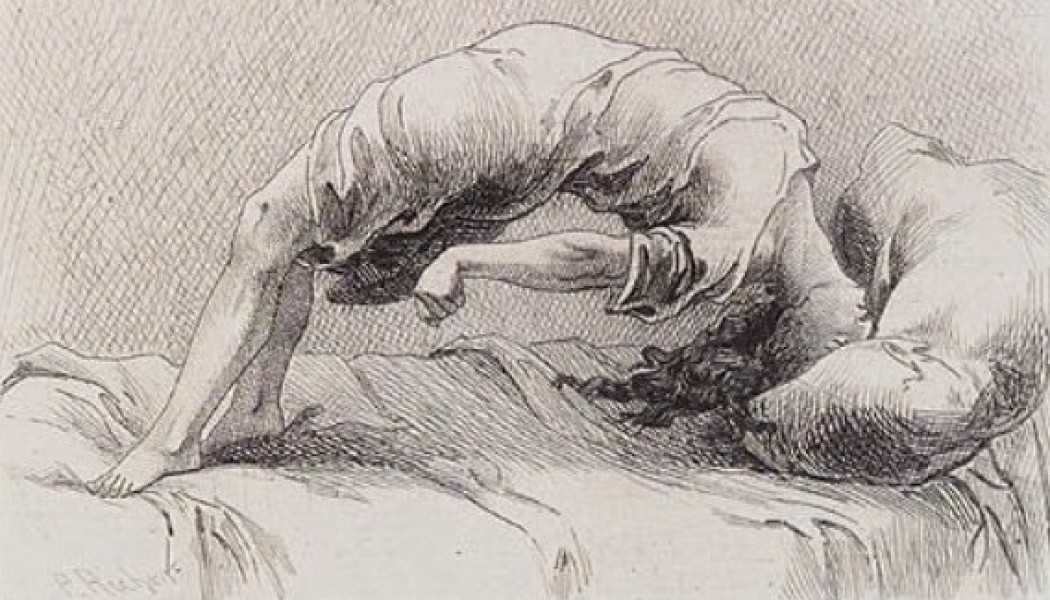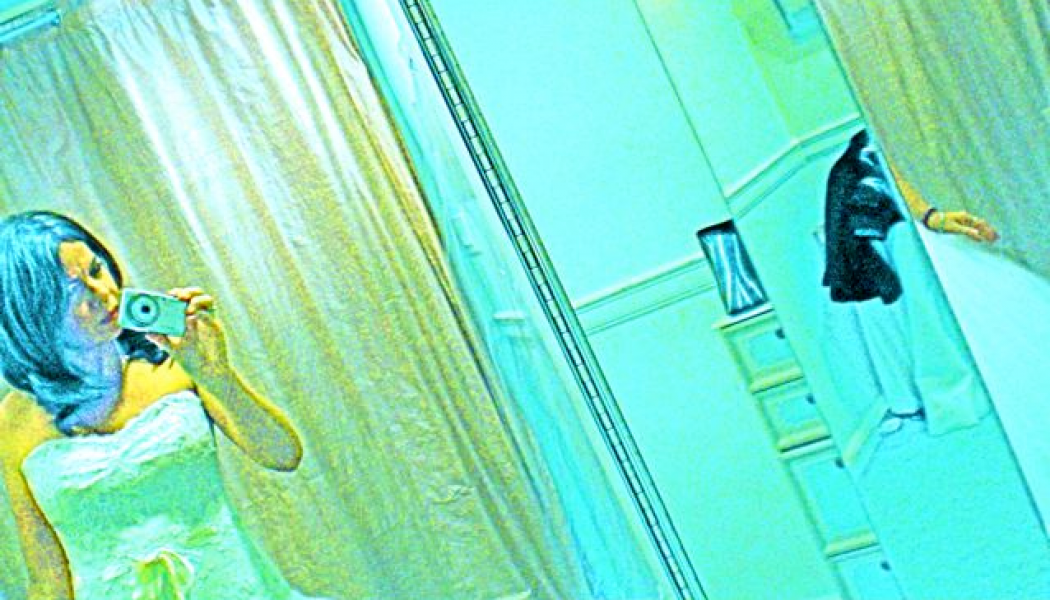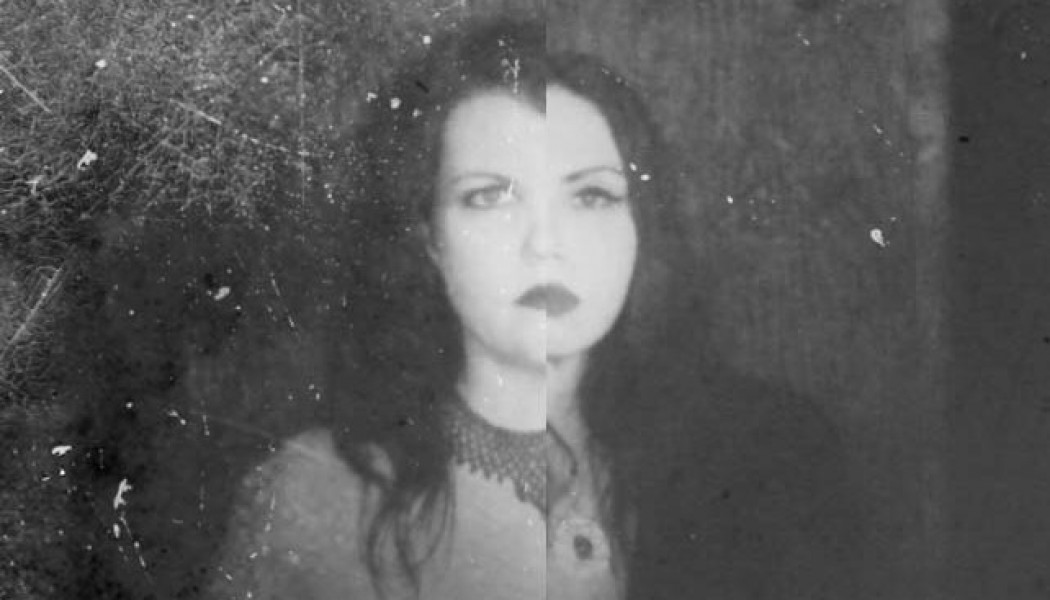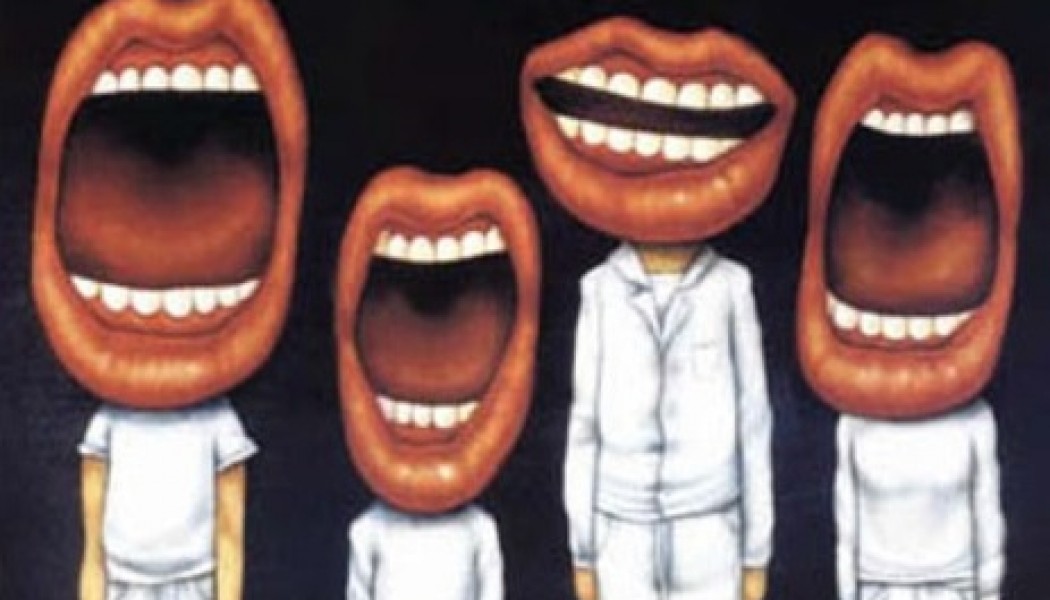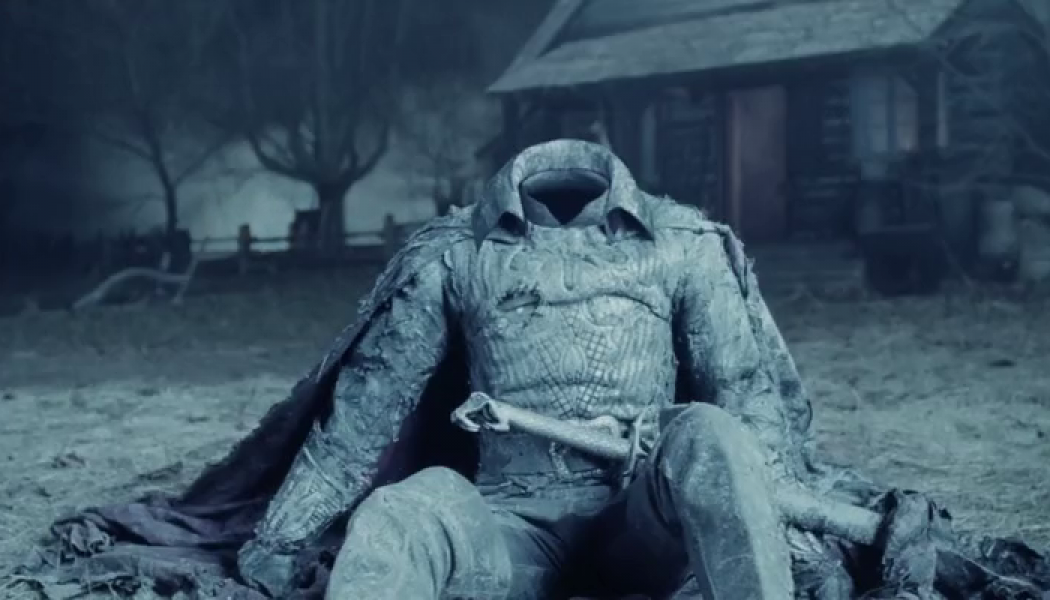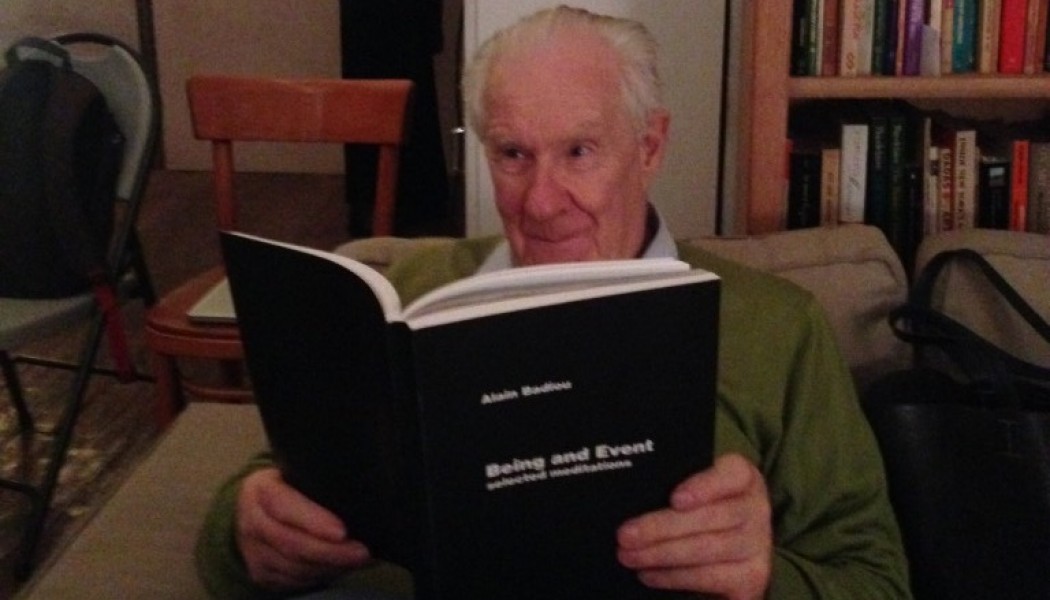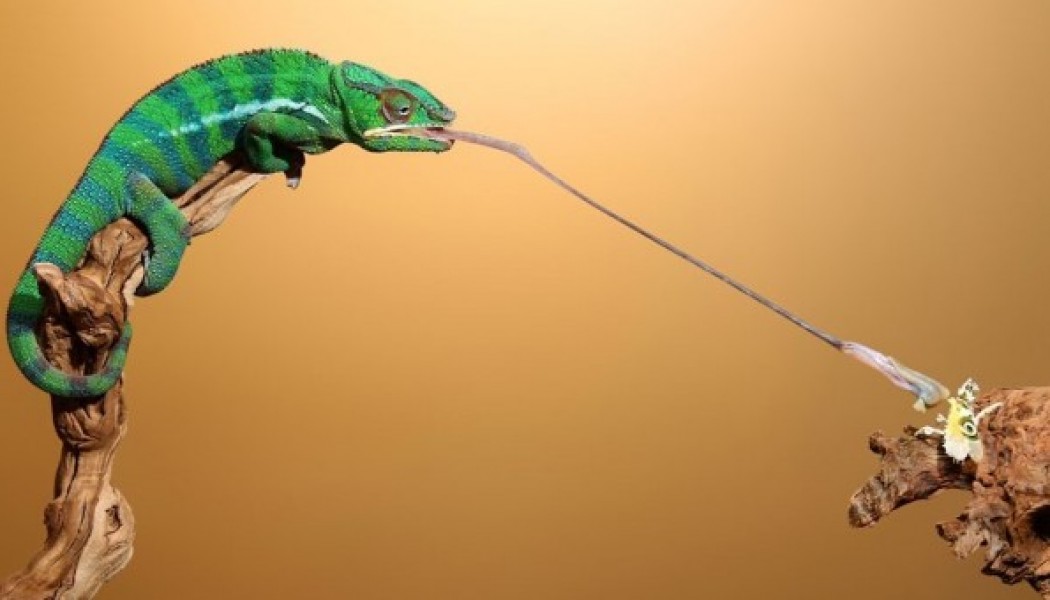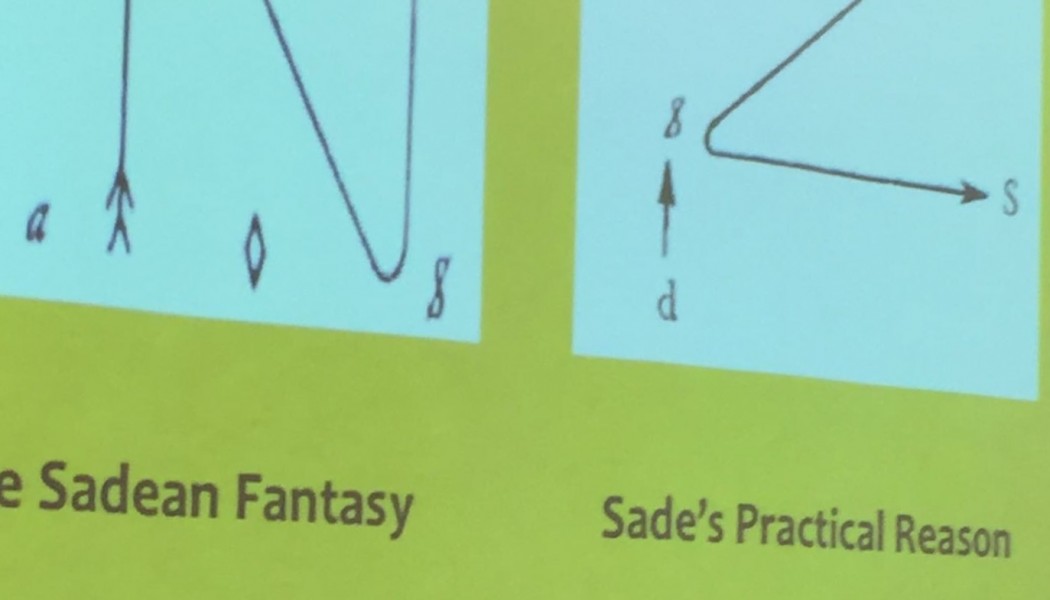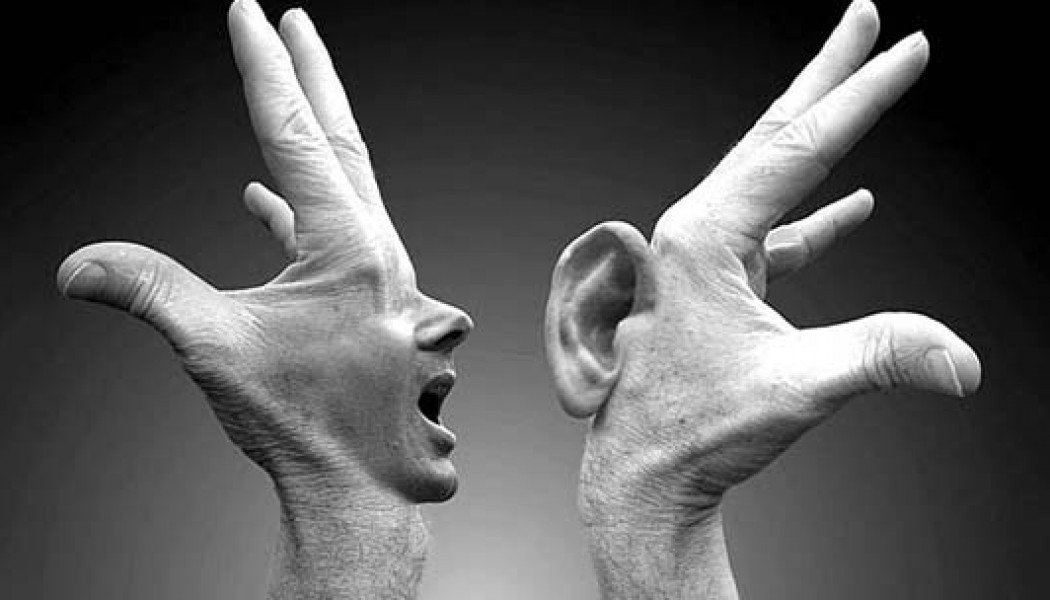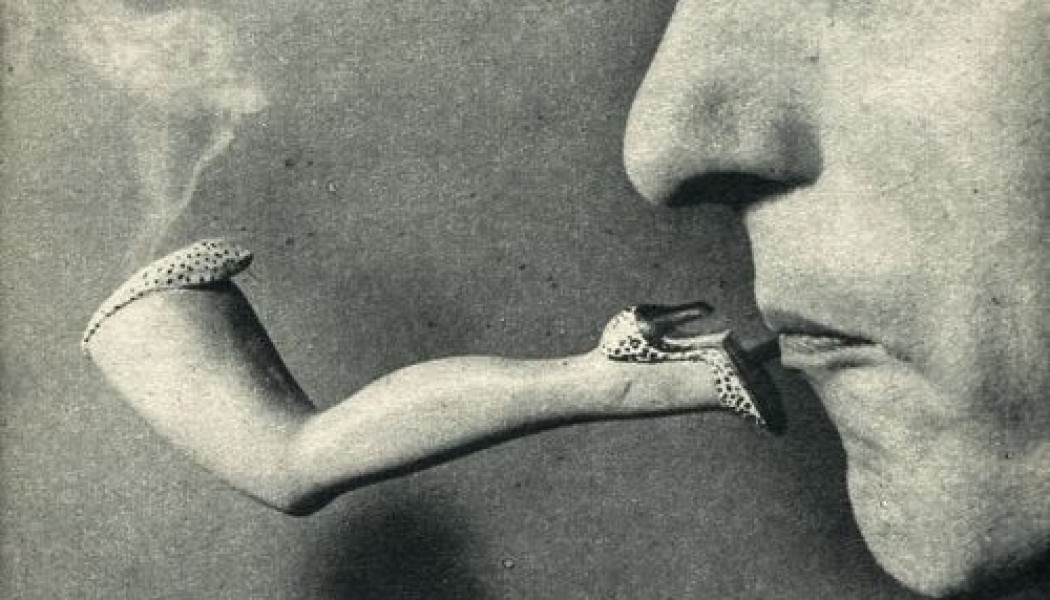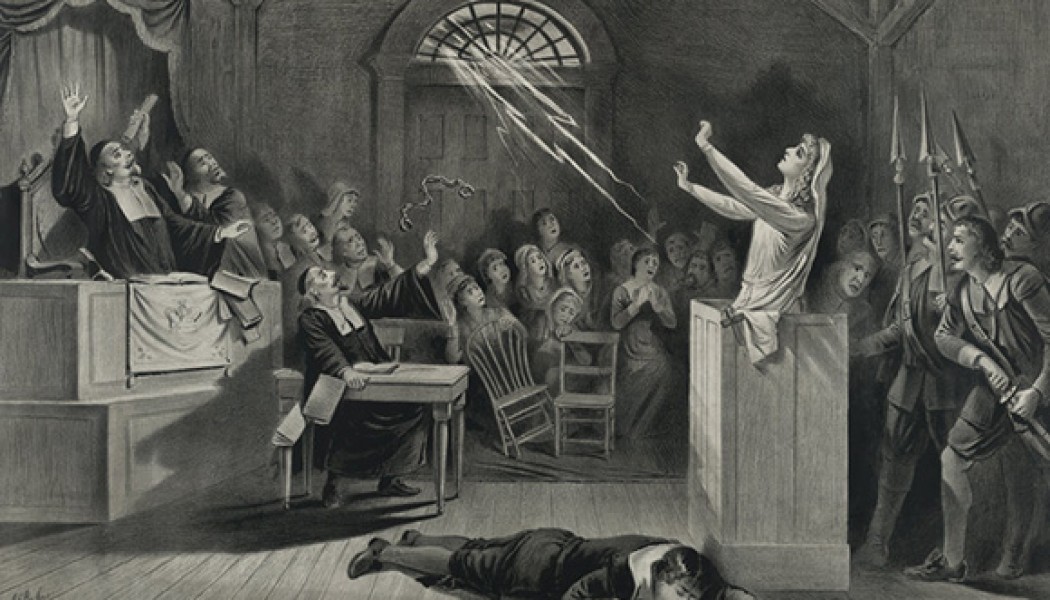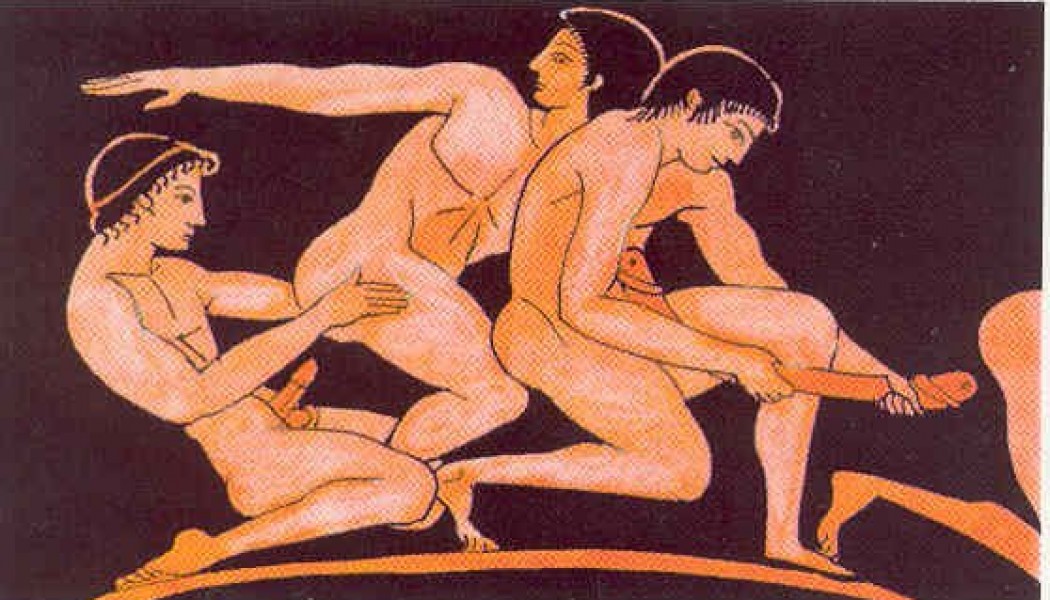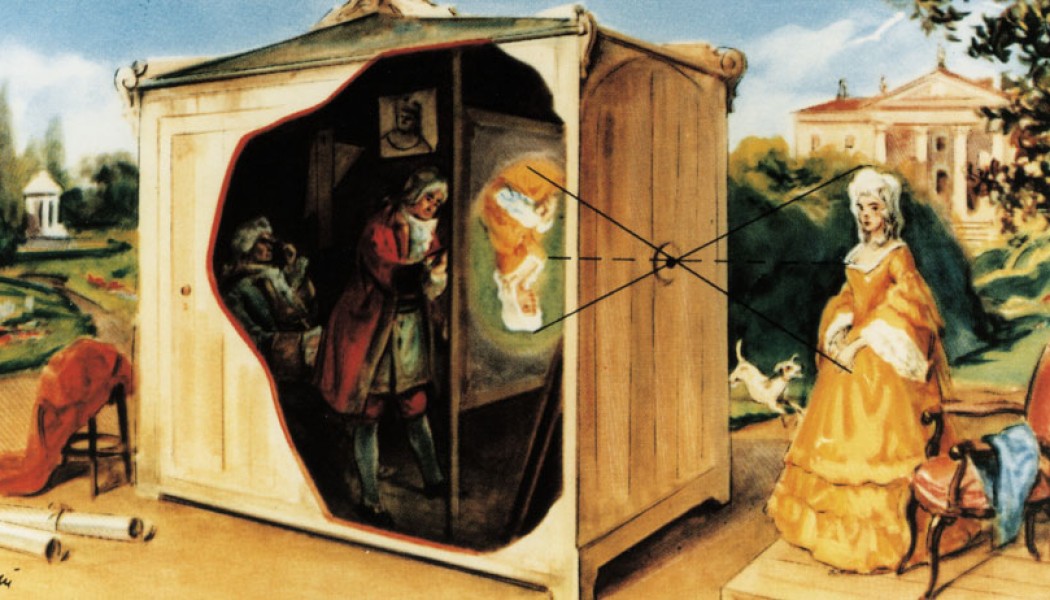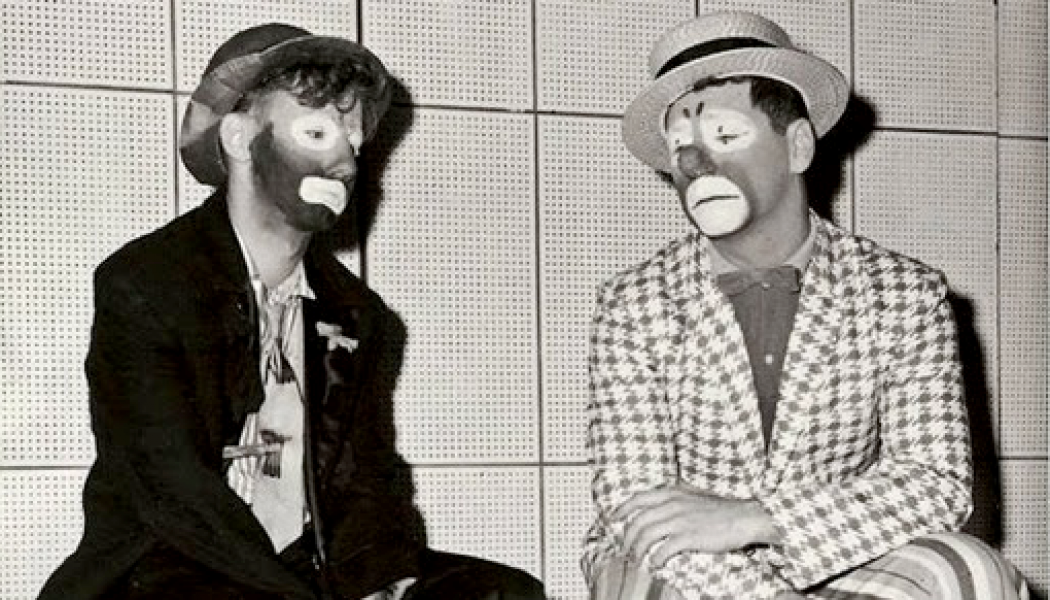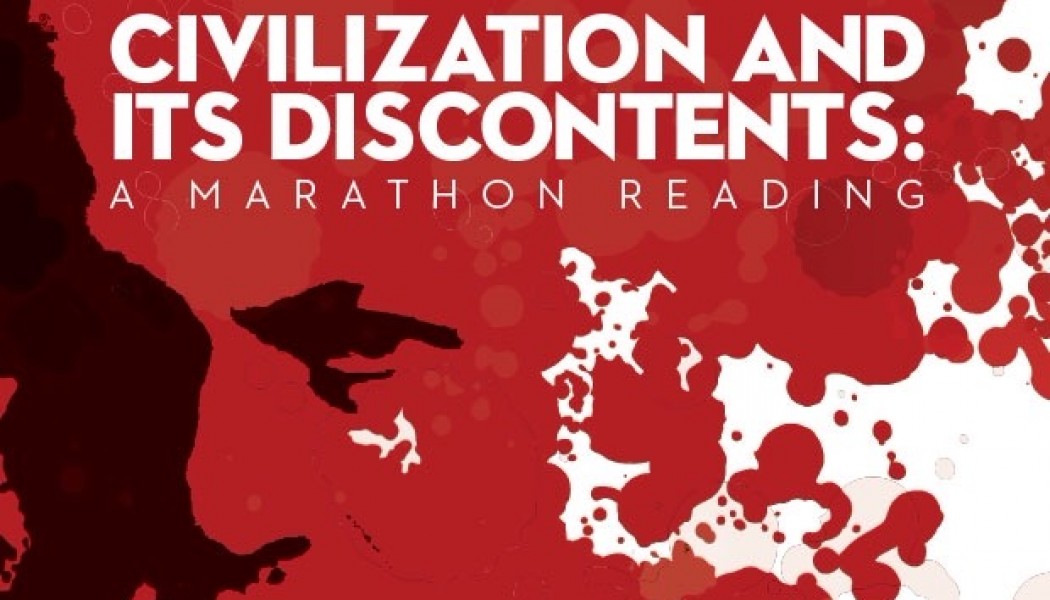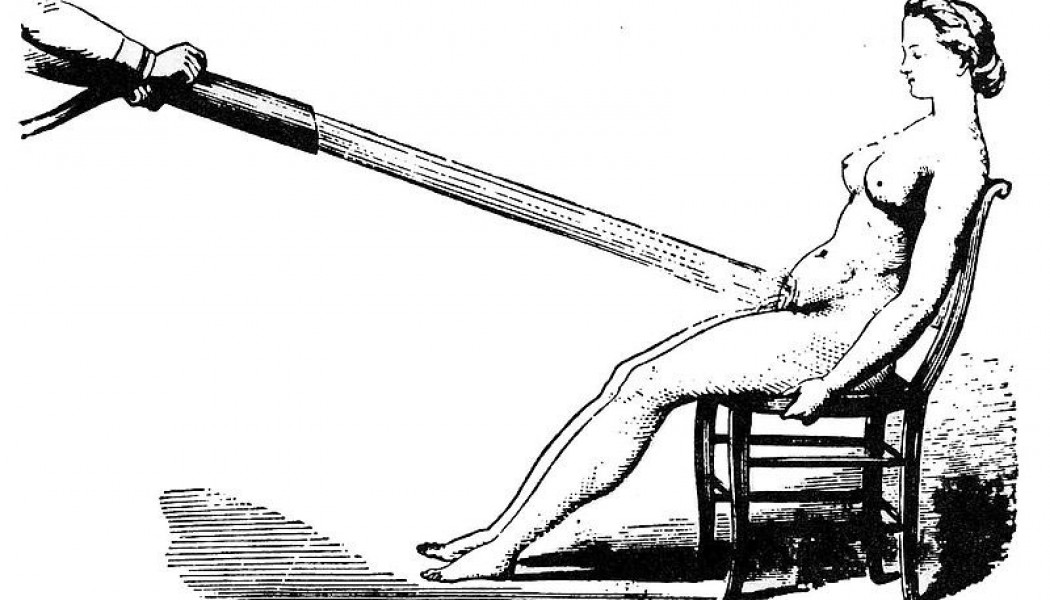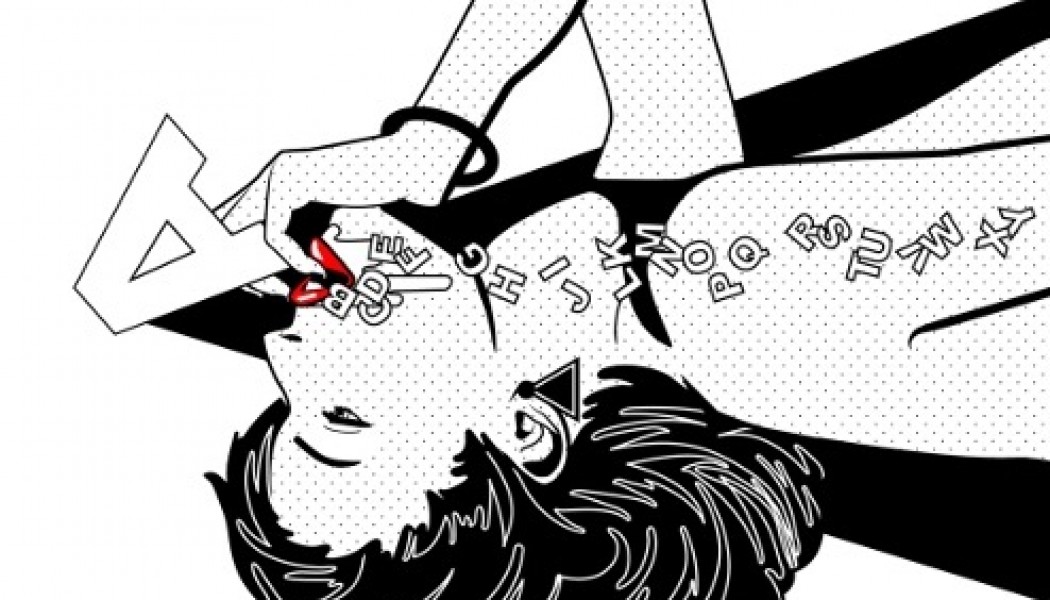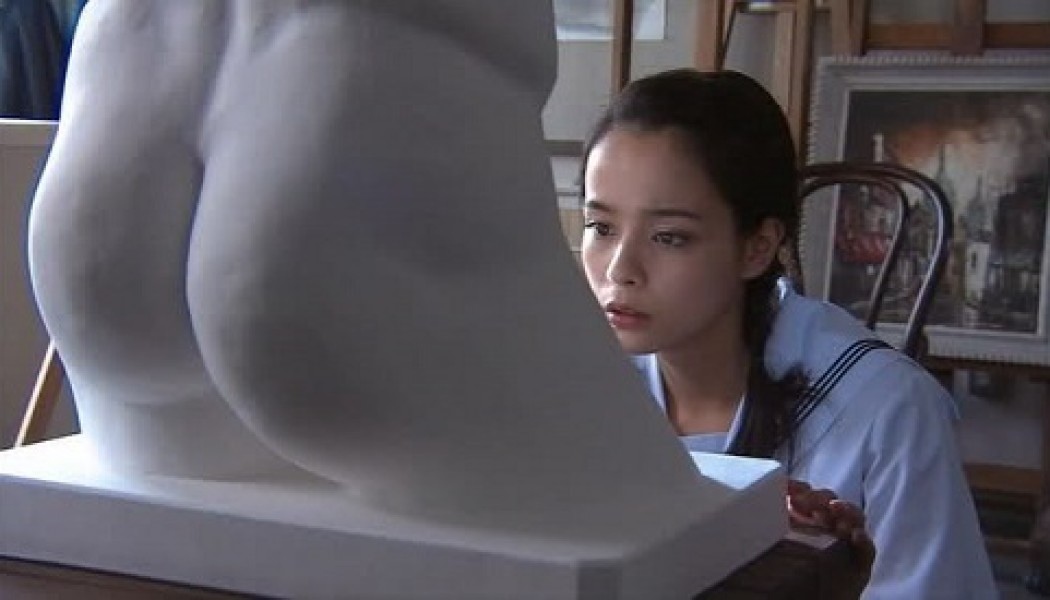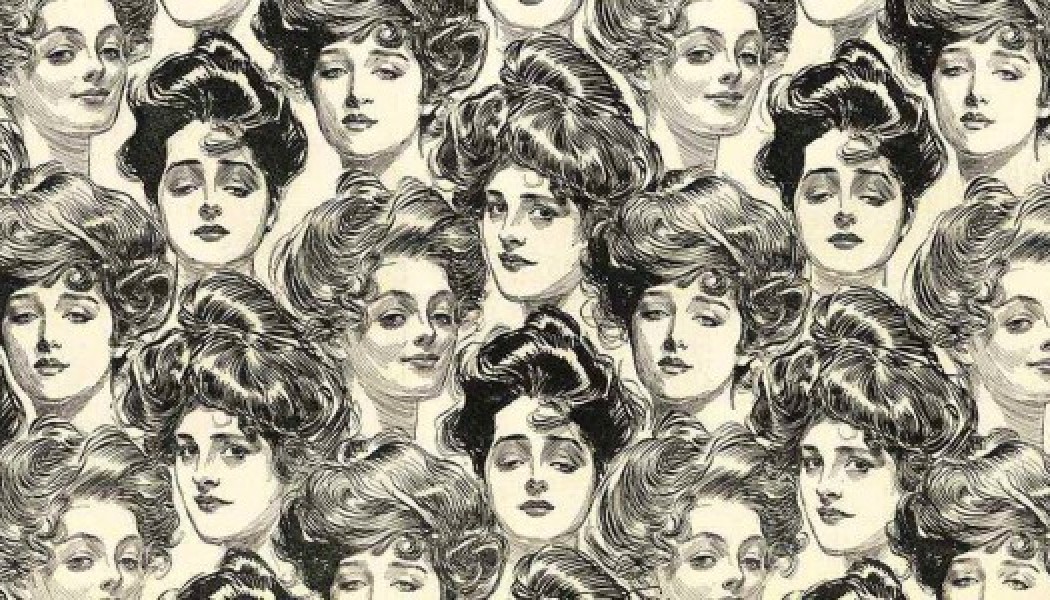UnbeFeed
Psychoanalyzing Ambivalence with Carol Owens and Stephanie Swales
Click here to watch on New School Livestream
Evan Malater: IHOP to Psychosis – Having Your Pancake and Eating it Too
Click here to link to text at Public Seminar
Adrian Price: “An Artificial Tongue with a Natural Curl” – On Lacan’s Last Major Written Piece ‘Joyce le Symptôme’
Click here to link to audio © A.R. Price
Jamieson Webster: Paranoid Encounters – From Masculinity to #MeToo – Paranoia, Hysteria and Other Neurotic Dispositions
On April 4, 2019, Jamieson Webster presented the opening keynote lecture for Paranoid Encounters, a graduate conference organized by The New School Philosophy Department. The conference explores a perspective often disregarded, even rejected by philosophy — that of paranoia — in order to understand ...
The Stutter in Psychoanalysis: A Mini-Course with Michael Levine
Click here for Class #1 audio Click here for Class #2 audio Click here for Class #3 audio
Transgender Psychoanalysis: A New Ethics of Sexual Difference – Patricia Gherovici & Oren Gozlan
Click here for link to audio
Ray O’Neill on Dali, Lacan, Freud, Narcissism & the Double
Irish Lacanian psychoanalyst Ray O’Neill discusses the life and work of Salvador Dali from a psychoanalytic viewpoint, addressing narcissism, the theory of the double & posing the question what’s really in a name? This talk was first presented at the Psychoanalysis, Art & the Occ...
Hilda & Freud: Collected Words
“The flowers and the words bear this in common, they are what I want. And the professor knew it.” H.D. Hilda & Freud: Collected Words is a play by Antonio Quinet based on H.D.’s Tribute to Freud, the letters she exchanged with Freud and her literary circle, her memoir of her psychoanalysis, and ...
Jamieson Webster at Night of Philosophy: Anxiety Anxiety Anxiety!
Click here to read full text of talk
Ricardo Goldenberg: Jouissance Again!
Summary by Evan Malater: No mere bomb cyclone could keep the Unbehagen from coming out in force for today’s day long Jouissance event featuring Brazilian analyst Ricardo Goldenberg. A fine day was had by all though Jouissance as such was had by none. By this I don’t mean to insult Ricard...
Mari Ruti: “The Disenchanted: Queer Theory between Negativity and Flourishing”
Summary by Evan Malater: Congratulations to Jill Gentile and the Ferenczi Center for their rousing event with Mari Ruti on Queer Theory and Penis Envy! By all indications it was a success. Not only was the hall completely packed but the level of engagement by the audience was impressive. Ruti’...
Marc Strauss: The Usual Sexpects
Summary by Evan Malater: Jamieson started with a message of discontent aimed at the discontents from part one of the Marc Strauss miniseries following Kelly Merklin’s admirable presentation. To those who seemed disturbed by the idea that Kelly’s patient was a (Lacanian) psychotic, she of...
The Unbejection’s Presentorsion Discustshine of Shock Lacan’s Famisslie Diffuckult Teckst: L’ETOURDIT
Summary by Evan Malater: With L’etourdit we find Lacan giving an address in the form of a hypercondensed recapitulation of his life’s thinking till that time (1972) with the added surprise that since he was secretly working on Joyce, the language was hypercharged with puns, overdetermina...
The Candidate Journal (Issue 7): “The Candidate, Barred”
It is our pleasure to announce the online release of Issue 7 of The Candidate Journal, titled “The Candidate, Barred.” Under the new editorial board, this issue of the journal considered questions that implicitly underlie the journal’s formation and perspective: that is, the notion of psychoan...
Schreber Live! Patrick Scanlon “Granted – From Glory to Grandeur”
This expanded cinema piece explores the materiality of light in the shadow of Schreber’s Memoirs. Additionally, the character of Judge Schreber is represented in costume, encouraging spectators to play with the film itself, refracting and reflecting the projector’s rays of light. Costume by Bekah Ca...
Schreber Live! Felix Bernstein, Patricia Gherovici, Gabe Rubin, and Jamieson Webster “The Trans-migration of the Body of Schreber into a Woman”
A planned interruption of the body of Schreber as it trans-migrates into the body. Click here to read the performance text
Schreber Live! Jonathan Dextrixhe “In Celebration of Father Schreber”
Schreber’s early development as a subject of his father’s child-rearing techniques are considered, along with questions about whether appreciating Schreber requires vilifying his caretakers. Jon Detrixhe (dee-trick) is a clinical psychologist with a private practice in Greenpoint, Brooklyn. He is an...
Schreber Live! Michael Eigen “I want to be a Woman – Caesura, Blackout, Rebirth”
Michael Eigen (born 1936) is an American psychoanalyst and writer, perhaps best known for his willingness to allow for the role of mysticism in the therapeutic process.
Schreber Live! Julie Fotheringham “Fleeting – Improvised WO/MAN”
This dance performance comprises “fleeting – improvised – movement” that spontaneously arises as if in response to “nerve contact” with fellow humans or the divine rays of God. These brief improvisations will embody Schreber’s words that suggest movement, such as “voluptuousness” and “ne...
Schreber Live! Kathleen DelMar Miller – A Variation on Memoirs of My Mental Illness
Kathleen DelMar Miller is a poet and psychotherapist in private practice. Her writing has been published in several journals and anthologies. She is an analytic candidate in training at ICP. Click here to read poem
Schreber Live! Michelle Castaneda “Dipping the Game”
Schreber’s concepts and voices appear, disappear, cajole, incite, and command according to their own individualized logics. In this short play, those logics drive the narrative as characters like So-What Party and Buttocks in the Mirror attempt to resolve the question of they didn’t let me use the s...
Schreber Live! Henry Lothane – Scholarly Writings
Click here to read “In Defense of Schreber: Postscript 1933” Click here to read “Schreber’s Ecstasies, or Who Ever Listened to Schreber?” Click here to read “The teachings of honorary professor of psychiatry Daniel Paul Schreber J.D. to psychiatrists and psychoana...
Schreber Live! Michael Vannoy Adams – Schreber Paintings
A series of five paintings illustrating a variety of poetic-psychotic processes from “Memoirs of My Nervous Illness”
Schreber Live! Vanessa Sinclair “ILLNESS MEMOIRS MY NERVOUS OF SCHREBER”
A series of works created by cutting up Schreber’s memoirs and combining them with other psychoanalytic texts, resulting in an uncanny peek into the recesses of the unconscious. Vanessa Sinclair, PsyD, is a psychoanalyst and clinical psychologist in private practice in New York City, and a founding ...
Schreber Live! Forecourts of Heaven (Scholarly Interventions)
Click here to read the text of Kabir Dandona’s talk “What is Soul Murder, Anyways?”
Schreber Live! Emma Lieber “Bellowing Presidents”
How are presidents nominated and named? How do they speak? I will argue that Trump’s language is far more confined than the supposedly psychotic productions of Schreber. In fact, compared to Schreber, Trump’s language is a prison of linguistic confinement. Emma Lieber is a psychoanalyst-in-training ...
Schreber Live! Luce DeLire “Milk that Goat – Freud, Kant, Schreber”
Milk that Goat – An Essay Film by Luce deLire The project: In a curious passage of his analysis of the memoir of the psychotic Daniel Paul Schreber, Sigmund Freud quotes Immanuel Kant as follows: “In Schreber’s system the two principal elements of his delusions (his transformation into a woman...
Schreber Live! Lakshmi Luthra “Interior Castle”
Interior Castle Voice and synthesizer Length variable A synthesizer mimics the cadences of the artist’s voice as she inhabits various scenarios, moving from the generic intimacy of a mental health screening, to a sadistic guided meditation, ecstatic visions and mythic mating rituals. This rovi...
Mass Psychology in the Age of Trumpism: Chiara Bottici, Judith Butler, Jamieson Webster
This event was part of the Philosophy Colloquium and of the “Fascism: Old and New” initiative in Public Seminar. Click here for more info on the Public Seminar initiative Summary by Evan Malater: 1) Jamieson Webster: On The Taboo on Virginity When faced with certifiable big questi...
Evan Malater: “I Want to Hate… and I Always Will”: The Psychoanalytic Writing of Donald J. Trump
“Our analysis tries to avoid the trap of analyzing Trump in order to follow the precise Trump logic set out in his full-page newspaper advertisement, on its own terms. Since this advertisement contains a rare example of Trump explicitly writing about psychoanalyzing, we abandon the many fruitl...
ECHO: A seminar with Vanessa Place and Jamieson Webster, in conversation with Jack Halberstam, Evan Malater, Sam McKinniss, and Naomi Toth
What is Echo after? This event was the sixth in the series “In Authenticity,” hosted by Vanessa Place and Jamieson Webster. PARTICIPANTS: Jack Halberstam is Visiting Professor of Gender Studies and English at Columbia University. Halberstam is the author of five books including: Skin Sho...
Teresa Mendez & Daniel Buccino: The Sublime Psychology of Baltimore
“Lacan locates the unconscious, the sublime nexus of all our psyches, in Baltimore in the morning. The unconscious, he tells us, is like dawn — that threshold between sleep and waking. It’s a pulsating neon sign, ticking time, advertising enjoyment. It is intermittent and fading, present...
David Lichtenstein: A Letter from New York
“Psychoanalysis has died many times and in many places. The causes of its repeated demise are often less instructive than the conditions of its resurrection. The cause of death is always a version of the same: it is a discipline that demands too much. It is too austere and takes too long, cost...
Steven Reisner: Stop Saying Donald Trump is Mentally Ill
“Sigmund Freud had a word for those whose unique gifts permit them to bend reality to their will: artists. According to Freud, the artist “allows his erotic and ambitious wishes full play in the life of fantasy. He finds the way back to reality, however, from this world of fantasy by making us...
Book Launch: “Lacan on Laughter—The new LOL” with Simon Critchley, Patricia Gherovici, Dany Nobus, Manya Steinkoler, and Jamieson Webster
How to fight a situation that seems farcical? When reality reaches absurdity, the subversive power of laughter steps in. Laughter is never innocent, it happens to us, at times inappropriately and inauspiciously. Psychoanalysis is well known for having shed some light on the perennial mysteries of wh...
Steven Reisner: Crazy Like a Fox – Evil is Not a Psychiatric Illness
Steven Reisner argues that Trump’s tactical strategies, including lying and bullying, have been such successful political strategies that they cannot be used as evidence of mental illness. I argue that the only delusion in such a successful manipulation of the truth for political advantage is ...
11 Questions to Vanessa Sinclair
“The basic idea is that in order to become a psychoanalyst, one needs three components: one must undergo one’s own analysis, one must see analysands while being supervised by an analyst, and one must study psychoanalysis, take didactics, classes, attend lectures, etc. It’s a field in which the...
David Bell: New Barbarisms
All cultures develop their own modes of self-explanation, but such explanations, somewhat like symptoms, inevitably conceal as much as they reveal. In this sense psychoanalysis may be well placed to enter into a critical relation with the forms of consciousness that characterize our age. At the curr...
Lucas Ballestin: Hipster Politics
Lucas Ballestín analyzes the politics of the hipster, looking to dispel assumptions and use psychoanalytic intuition to explore new ways of thinking the much-hated figure as a response to contemporary political and social conditions. Click here to read the essay published in HKRB
Laurence Rickels: All You Vampires
The title “All You Vampires” summarizes the drift of the presentation by tampering with the title of Robert Heinlein’s time-travel story “All You Zombies” and placing the vampire in the seat of sole survivor (and mourner). To this end I attend to the origin story of the living dead, Richard Matheson...
Claire-Madeline Culkin and Ray O’Neill on Narcissism, Mourning & Sexuality
“All names carry ghosts of the pasts and desires in the present. For each of our namings there is a dopplegänger, a double from whom that name has been stolen/inherited, be it an actual person or a desired personal identity” – Ray O’Neill Click here to read a review of the event by Sola Agusts...
Marcus Coelen: Schreber – Text and Transference
Schreber does not stop triggering transference. The Memoirs of My Nervous Illness, published in 1903, drew Jung to draw Freud’s attention to it, leading the latter to write his “Remarks on an Autobiographically Described Case of Paranoia” (1911)—and since then an ever growing textual network of writ...
Jill Gentile: Psychoanalysis, Democracy, Desire
“Might it be that democracy’s enduring relevance and comparative advantage is a tribute itself to its very own special, maybe sacred, relationship to the practice of free speech? Might democracy’s status as a beguiling master signifier reveal that its mission is essentially also a psychoanalyt...
Jordan Osserman: On the Foreskin Question
“We have known at least since Foucault that the Victorians were paranoid about, and therefore in the habit of proliferating, sex. Improper, excessive sexuality lurked around every corner, associated with unruly behavior and florid physical ailments, such as the endlessly enigmatic “hysteria.” ...
Psychoanalysis, Art, and the Occult
“We crossed over, in the sense that representatives from different environments shared time-space and actually communicated with each other. And we crossed over in the sense that we genuinely listened to each other with apprehensive ears and minds. We crossed over in the sense that we realised...
Das Unbehagen in conversation with Paul Verhaeghe
Summary by Evan Malater Verhaeghe at this point in his career seems interested in accessible models that can be shared beyond the enclaves that speak Lacanian. He gave us a rendition of ideas in his last book, What About Me (Identity is the title in the original, his publisher thought that this hoke...
Trans*Unbehagen: What is Trans*Psychoanalysis
Introduction by Evan Malater This event was born from the ashes of a listserv thread that has reached 100 posts and shows no signs of dying. So to start, a passage from a post by Cecilia Wu: “ If it is our goal as a progressive society to maximize the range of gender expression, why bother with the ...
Esther Sperber: The Shadow Of Zaha Hadid – Lilith Magazine
“…But alongside my admiration, and slight envy of Zaha Hadid, I hear a small ugly voice whispering in my head. This voice says, “she was too big for life and so she died.” It is true, I admit, that she defied so many social norms, being ambitious, creative and successful, and choosing no...
Psychoanalysis and the Occult
Psychoanalysis and the Occult (Case Material on Psychic Reality) April 9 2016 – NPAP Sponsored by Analytica.org and Unbehagen.org Created by Scott Von and David Schweichler Click here for link to audio Thee Psychoanalysis and the Occult symposium took place last week on April 9 ...
A/cephalic Discontents: Group Psychology, The Absence of Myth, and The Knot of Acephale
Scott Jenkins’ Notes on A/cephalic Discontents: Session I: There is a kind of nudity in anonymity, at least as much as there is a mask. The particular pleasure of the discussion: despite its intimacy, nobody in the room was familiar, on terms other than the texts, with more than a handful of o...
Guilherme Massara Rocha: The Secret of Her Eyes – Necessity and Contingency in a Fragment of a Psychoanalytic Treatment
When we lose the eye as the phallus that guarantees the consistency of the visual, the blindness that ensues is not simply a non-signifying darkness, but rather an ‘undifferentiated palate of images.’ The event of an ocular castration gives way to a seething imaginary without the security of a local...
Freud as a Thinker of the Political Body: Fear and Distress as Political Affects – Vladimir Safatle in Conversation with Marcus Coelen
“For Freud distress is a prerequisite for social emancipation, not an experience of resignation or vulnerability, a demand for care by proto-parental figures, or a continued political experience of exploitation of fear. What we have in Freud the affirmation of distress as an ontological insecu...
Institute No Institute
Becoming a psychoanalyst is founded upon a subjective transformation that occurs in a personal analysis. It cannot be measured or predicted, yet it is the necessary factor that allows one to conduct analytic treatment. Neither the analyst alone nor a group of independent observers can determine its ...
Jamieson Webster: “Sick Bodies, Hysterical Pregnancies, ISIS Wives”
“Conversion is linked to combustible effects, to desires and fears that remain hidden, unspoken, but ripe, a demand that takes place through the body. This is certainly the situation with the original “conversion hysterics” of psychoanalysis. “I have a sounding board in my abdomen…if anything ...
Tracy Morgan: “To Disembark”
“The denouement of a ten-year psychoanalytic treatment brings to mind the story of Jane Eyre. I was seven years deep into my analysis when I began to have the feeling that, like Jane’s blinded Mr. Rochester, my analyst had lost sight of me. From the precise moment I met Jane, and I can still ...
Interview with Patricia Gherovici: “The Unconscious is the Last Activist”
PATRICIA GHEROVICI: I was first a writer before I became an analyst. I was working as a journalist while I was a student and I did a lot of journalistic writing. There was a continuation of that early career in my practice of analysis. Indeed, the process of analysis could be seen as a process of wr...
Steven Reisner: Just One More Question – New York Times Couch
“Eventually, we came around to my problem, which, of course, had echoes of former problems of mine with which he was familiar. He listened closely and, after a pause, looked me squarely in the eye, and with a deep knowledge of me, said, “You will not be fully yourself until you are wholly alig...
Manifesto Fest in DIVISION/Review
A group, including many Unbehagen members, presented a Manifesto Fest at the 2015 Division 39 Spring meeting in San Francisco. Click here to read the manifestos of Will Braun, Jill Gentile, Lynne Layton, Tiffany McLain, Tracy Morgan, Jonathan Shedler, Esther Sperber & Robert Stolorow, published ...
Katelan Foisy and Vanessa Sinclair: The Cut in Creation
We live in a world of systems, of structure. We are raised to believe that this is inevitable, the natural order of things. Science proves it is so. But what happens when we start to question this order, dare to challenge it? And what would happen if we break it down, disassemble it, cut it up? “The...
Without History: An Experimental Case Presentation
“For today’s event, we have asked our three analysts to present the same case, which is an ongoing psychoanalysis, being conducted by yet another clinician who’ll remain anonymous. Our three analysts will present this case based on a set of process notes only, without access to case history or...
Jamieson Webster: Speaking into the Void of the Unbehagen SalOon Listserv
DU tends to forget itself, which isn’t a bad thing. And the idea of DU, and its various allegiances, shift and grow and mutate which is a small miracle in often stuck communities. There are a lot of new people on the list serve, people who haven’t attended events, people who only know on...
Evan Malater & Cecilia Wu: Rumplefreudskin – The Fantasy of the Immortal Plaque
In a famous letter to his interlocutor Wilhelm Fliess, Freud imagined that the place where he had and decoded the Irma injection dream would be one day marked by a plaque. ” Do you suppose that one day a marble tablet will be placed on the house, inscribed with these words: ‘On July 24,...
A Panel for the Launch of George Makari’s “Soul Machine: The Invention of the Modern Mind”
“Imagine a time in the future when your mind might travel. Perhaps it would enter a different torso or a foreign face. Would you still possess the same self, the same being? Our minds, most of us would agree, define us; they carry our personhood, and where they go, we go too. In Western cultur...
a/cephalic discontents: an event series curated by das unbehagen
“A dictionary begins when it no longer gives the meaning of words, but their tasks. Thus formless is not only an adjective having a given meaning, but a term that serves to bring things down in the world, generally requiring that each thing have its form. What it designates has no rights in an...
Double Entendre: Katy Bohinc, Rachael Wilson & Jamieson Webster respond to Alain Badiou
Wendy’s Subway presented performances and discussion of Bohinc’s “psycho-sexual thriller” Dear Alain, Webster’s The Life and Death of Psychoanalysis (Karnac Books, 2011), which addresses Badiou’s theory of love and asks how it may be conceived from the psychoanalyst’s discourse; and Wilson’s “Fiftee...
Dana Amir: Cleft Tongue: The Language of Psychic Structures
“The scene of perversion is a scene of seduction. In this scene, which is shared, whether consciously or not, by two people, there is a continuous continuous reversal of roles in which the chosen object, the person on which the perverse subject actually depends and with whom he yearns to fuse,...
Muriel Dimen: A Last-Minute Breakthrough – New York Times Couch
“Julia returned after the August vacation that we New York psychoanalysts customarily take. Well, not right after. She missed the first session. A family obligation, she said. Were I a traditional analyst, I might have wondered to myself: “Is there ambivalence here? Perhaps she doesn’t want to...
Jamieson Webster & Nuar Alsadir in conversation with Barry Yourgrau for the launch of “Mess”
“The word “hoard” derives from the proto-Germanic term for “hidden or secret treasure.” Hoards are well known to archeologists, dating back over 10,000 years to the hunter-gatherers of the Stone Age. Foodstuffs such as joints of meat were common early deposits, ditto ornaments, weapons, and human re...
Dany Nobus: Writing as an Instrument of Torture – An Exploration of Sade’s Practical Reason via Lacan’s “Kant with Sade”
Of the twenty-eight substantial papers and six shorter contributions that make up Lacan’s Écrits, “Kant with Sade” is generally regarded as one of the toughest nuts to crack, and this opinion is shared by some of the most eminent and knowledgeable commentators on Lacan’s work. In this seminar, I wil...
Josh Cohen: Art, Psychoanalysis, Art and the Logic of Indifference
“As Leo Bersani and others have observed, there is a paradox at the heart of the Freudian corpus that animates and finally undoes it. In resisting the theoretical innovation of the death drive, Freud’s contemporaries were resisting an inner tendency of psychoanalysis to corrode the capacity of...
Orna Shachar: The Therapeutic Gaze – New York Times Couch
“Daniel, a handsome 50-year-old whom I name the Marlboro Man because of his hyper-masculine looks and swagger, walks into my office and drops his body on the couch across from me. In a monotonous voice, his speech laced with obscenities, he announces his failure — his failure in life, in relat...
Evan Malater & Cecilia Wu: Pass the Porcupine – Freud, Porcupines and You
dear Porcupines, As an extra credit assignment following the Angelo Villa talk, Cecilia Wu and I became interested in the porcupine parable from Schopenhaeur that Angelo Villa offered towards the end of his presentation. Angelo used the parable to address the question of how a group might survive i...
Esther Sperber: The Architecture of Psychotherapy – New York Times Couch
“If you listen to psychotherapists when they talk to one another, you will often hear them speak of something called the “therapeutic frame.” This term, coined by the psychoanalyst Marion Milner, refers to the set of conventions and ground rules that structure the therapeutic experience. Just ...
Vanessa Sinclair: Das Unbehagen of Duchamp, Dada and Psychoanalysis
“In 1917, Marcel Duchamp submitted a urinal to the first annual exhibition of the Society of Independent Artists here in New York under the pseudonym, R. Mutt. Duchamp was one of the founding members of this organization, along with Walter Arensberg, Katherine Dreier, Man Ray, and Joseph Stell...
Angelo Villa: Hystericization and Psychoanalytic Belonging
“For belonging does entail an identification; I suggest that the turning point must be made through the difference between a passive identification and an active one. As far as the analysis delves into a familial bond, it allows the patient to return and find a new place in his personal histor...
Patricia Gherovici: Attack of the Difficult Ecrits – Class 2 – The Situation of Psychoanalysis
This class was based on a collaborative annotated reading by Patricia Gherovici and Manya Steinkoler of Lacan’s “The Situation of Psychoanalysis and the Training of Psychoanalysts in 1956,” to be published in the forthcoming Reading the Écrits – A Guide to Lacan’s Works, edited by Derek Hook, ...
Jamieson Webster: Attack of the Difficult Ecrits – Class I – Variations on the Standard Treatment
A poetic rendition by Cecilia Wu If we follow Jamieson’s lead and focus on the writing itself, considering the fact that Lacan’s writings are unsweetened, condensed transcripts of his speech acts, it’s hard to dismiss his mode of attack as a pain in the ass, or as unruly hunks of r...
Gerard Pommier: What Did Feminism and Gender Studies Bring to Psychoanalysis?
In his presentation to Das Unbehagen, Gerard Pommier addressed the challenge of defining the term ‘Woman’: “The uncertainty is such that this difficulty of definition could be used itself as a definition and normative ideal! Judith Butler writes, for instance, that “if a subject un...
Somatic Experiments, Clinical Encounters: In the Consulting Room with “Testo Junkie” – Paul B. Preciado in conversation with Kirsten Lentz, Carolyn Stack and Jamieson Webster
This interdisciplinary forum on Testo Junkie: Sex, Drugs, and Biopolitics in the Pharmacopornographic Era, puts author Paul B. Preciado into conversation with clinicians — Kirsten Lentz, Carolyn Stack, and Jamieson Webster, along with moderator Muriel Dimen — to discuss the range of ways Preciado’s ...
Sergio Benvenuto: Perversions are not Paraphilias
“Many deny, of course, that perversions exist, even if the dominant psychiatry has re-baptized them as “paraphilias.” A name change attributable to political correctness, considering that the term “pervert” is today an insult. In Greek, paraphilia means “wrong love”. After all, it’s better to ...
Adele Tutter: Under the Mirror of the Sleeping Water – Poussin’s Narcissus
Nicholas Poussin’s four paintings on the theme of Narcissus and Echo, completed over the course of three decades, reflect a deepening appreciation of their source in Ovid’s Metamorphoses. Poussin’s interpretations of the Narcissus myth parallel critical junctures in the development of psychoanalytic...
Elissa Marder: Knock Knock: Femininity, Fixation, Photography
“Ultimately, what I am seeking in the photograph taken of me (the ‘intention’ according to which I look at it) is Death: Death is the eidos of that Photograph. Hence, strangely, the only thing that I tolerate, that I like, that is familiar to me, when I am photographed, is the sound of the cam...
Performance/Panel: “The Ontology of the Rape Joke” with Vanessa Place, Jeff Dolven, Gayle Salamon, and Jamieson Webster
Rape is an act of physical and sexual violence; jokes are understood as a kind of psychic disruption, with humor forcing a release of pleasure. According to Freud, jokes can function as a shared victory over social repression, and “jokes that have a purpose run the risk of meeting with people who do...
Freud Out Loud: Civilization and its Discontents – A Marathon Reading
“The inclination to aggression constitutes the greatest impediment to civilization.” – SIGMUND FREUD, 1929 Why is the world so violent? Why can’t civilization contain it? Freud knows! Few thinkers understand human aggression as powerfully as the founder of psychoanalysis, Sigmund Freud. His 19...
Matthew Oyer: Hysteria and the Psychoanalytic Act
“The history of hysteria spans nearly four thousand years: four thousand years of the wilderness of women’s bodies and of manifest destiny, or the attempts of men to push ever further the boundaries of the frontier, four thousand years of shame, of defiance, four thousand years of theater, of ...
Feminine Pathologies: An EJP Special Edition edited by Fernando Castrillon and Jamieson Webster
“Of course, what is lost in this conception of hysteria is precisely one of its most fundamental characteristics; hysteria moves and grows beyond the confines of whatever conceptual grid we try to fit it into. If it’s not here, now, it’s there; wherever we have made there out to be (Victorian ...
Claude-Noële Pickmann: Suppléance by the Symptom: A Case of Anorexia
“The feminine Oedipal structure as Freud discerned it in his young hysteric patients in the first half of the twentieth century has taught us that the question “what is a woman?” is first posed by a girl to her mother. Later, upon finding that the maternal response has only misled her, she ch...
Jamieson Webster: The Accidents of Psychoanalysis – New York Times Couch
“In the aftermath of what we shrinks call “August” — a euphemism for the acute clinical moments that our patients experience while we’re away for the standard three to five weeks of vacation — I found myself reflecting on a series of physical accidents that befell too many of my patients durin...
Cecilia Wu: Reflections on Marcus Coelen’s Philological Psychoanalysis
Here are some notes, reflections and questions on Marcus Coelen, Hannah Wallerstein, and Jamieson Webster’s presentations and the conversations that followed: 1) The Lending of Material, and the Dance of Withholding – Marcus names the 3 compliances or plasticities of materiality of psych...
Angelo Villa: Psychoanalysis and the Handicapped
“Over the last few years, definitions of handicaps and disabilities have multiplied themselves, either generating improbable neologisms or exploring language in search of an impossible formula which may combine the designation of a difference with its negation. The ensuing feeling of confusion...
Patricia Gherovici: Two Fund(a)mental Concepts of Lacanian Psychoanalysis – A Course on The Phallus and object a
Can psychoanalysis rethink sexuality without fully relying on the controversial and contested notion of the phallus? The simplest, schematic version of the Freudian Oedipal model offers a binary logic of having or not having it, of presence or absence: boys have it, girls don’t. For Freud, castratio...
Genevieve Morel: The Unsinkable Fantasy
“Because the symptom is a source of complaint, we speak about it in psychoanalysis, to get rid of it. To the contrary, fantasy is so enjoyable that there is no incentive to speak of it, as Freud had noticed. We would rather keep to ourselves this intimate and painless satisfaction. Yet, withou...
Marc Strauss: On Female Obsessional Neurosis
“What is the obsessional neurosis as such is not an easy question, because even the most characteristic symptom such as the ritual or the OCD, as it is called nowadays, belongs to the most different personalities. Lacan used the structural model because there is no symptom that would character...
Patricia Gherovici & Jamieson Webster: Observations from Working with Female Obsessionals
“Where have all the beautiful hysterics gone? Lacan once asked. Is it possible that there may have been a shift from obsessionality as a defining core feature of male neurosis, what Freud calls a “preference” or “choice”, to obsessionality as a veneer that covers over hysteria in women as much...
- 1
- 2
